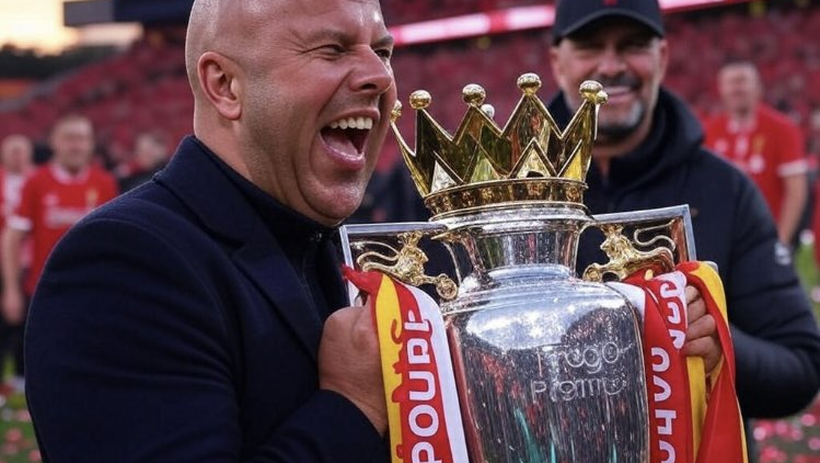
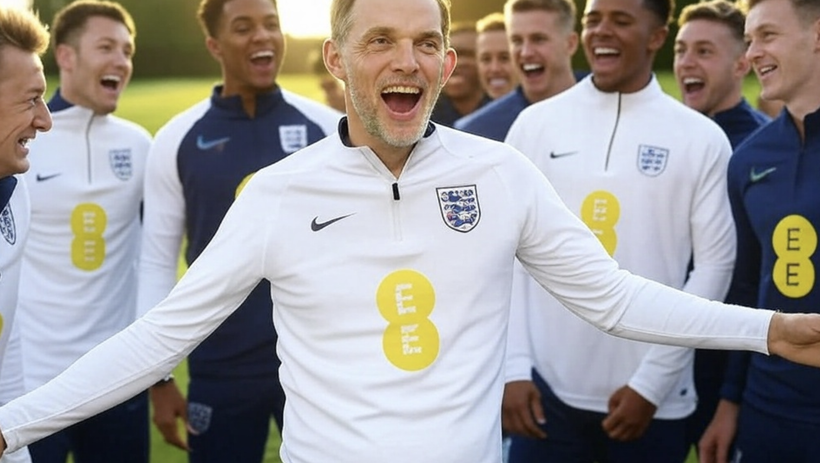
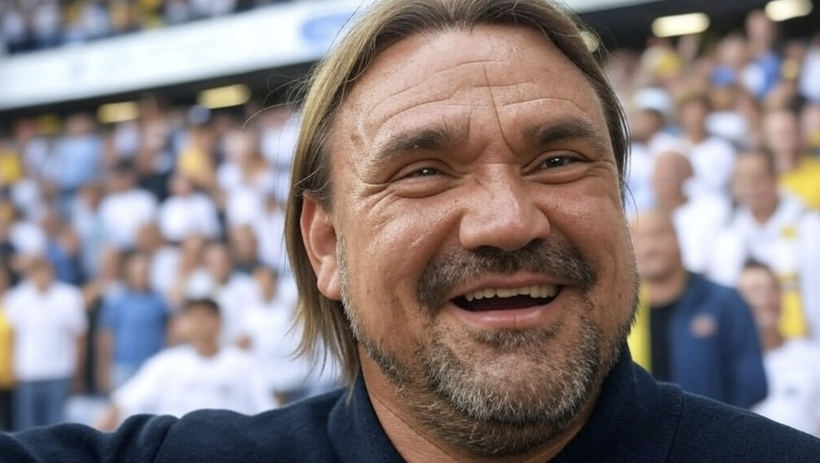
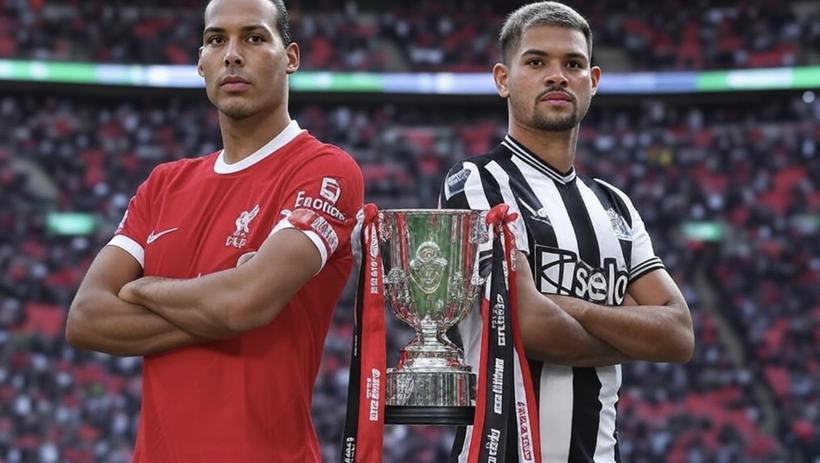
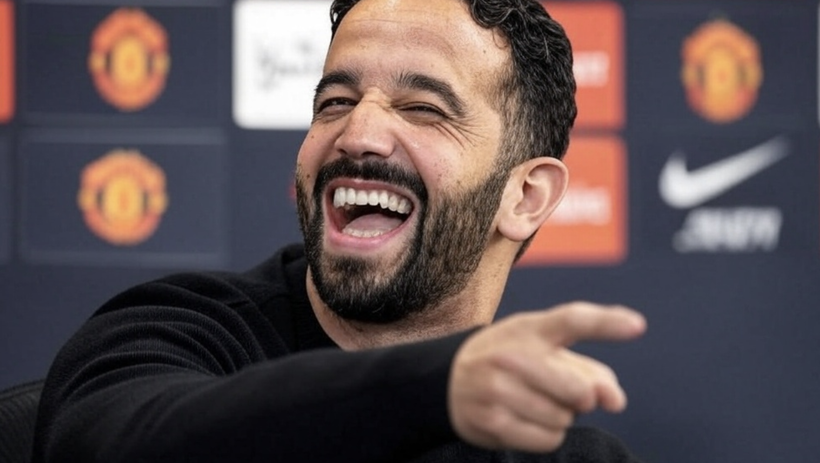
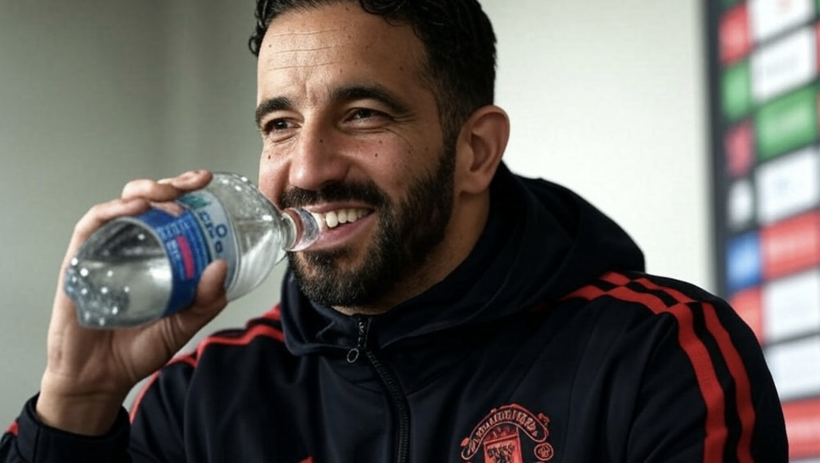
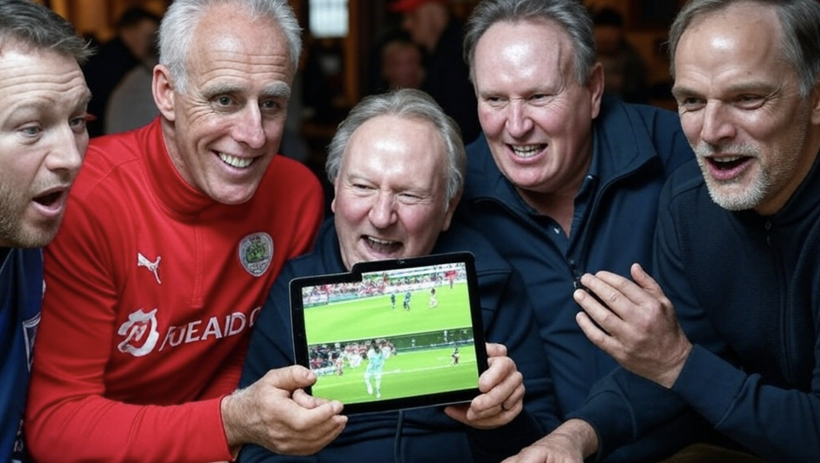
Just for fun we imagined the future of football in the Premiership in 25 years time. We prompted the AI to give us an imaginary glimpse into what the Premiership would look like in 2050!
To weave a compelling narrative about the English Premier League (EPL) from the present day (2024) to the 2049-2050 season, we'll start by establishing key milestones and technological advancements that lead to the dramatic transformations in football and its global dynamics. This story will highlight the introduction of new technologies, the entrance of influential personalities, the evolution of club ownership, and the emergence of new team dynamics. We'll also touch on the geopolitical changes that affect the structure of football leagues in the UK and beyond.
2025: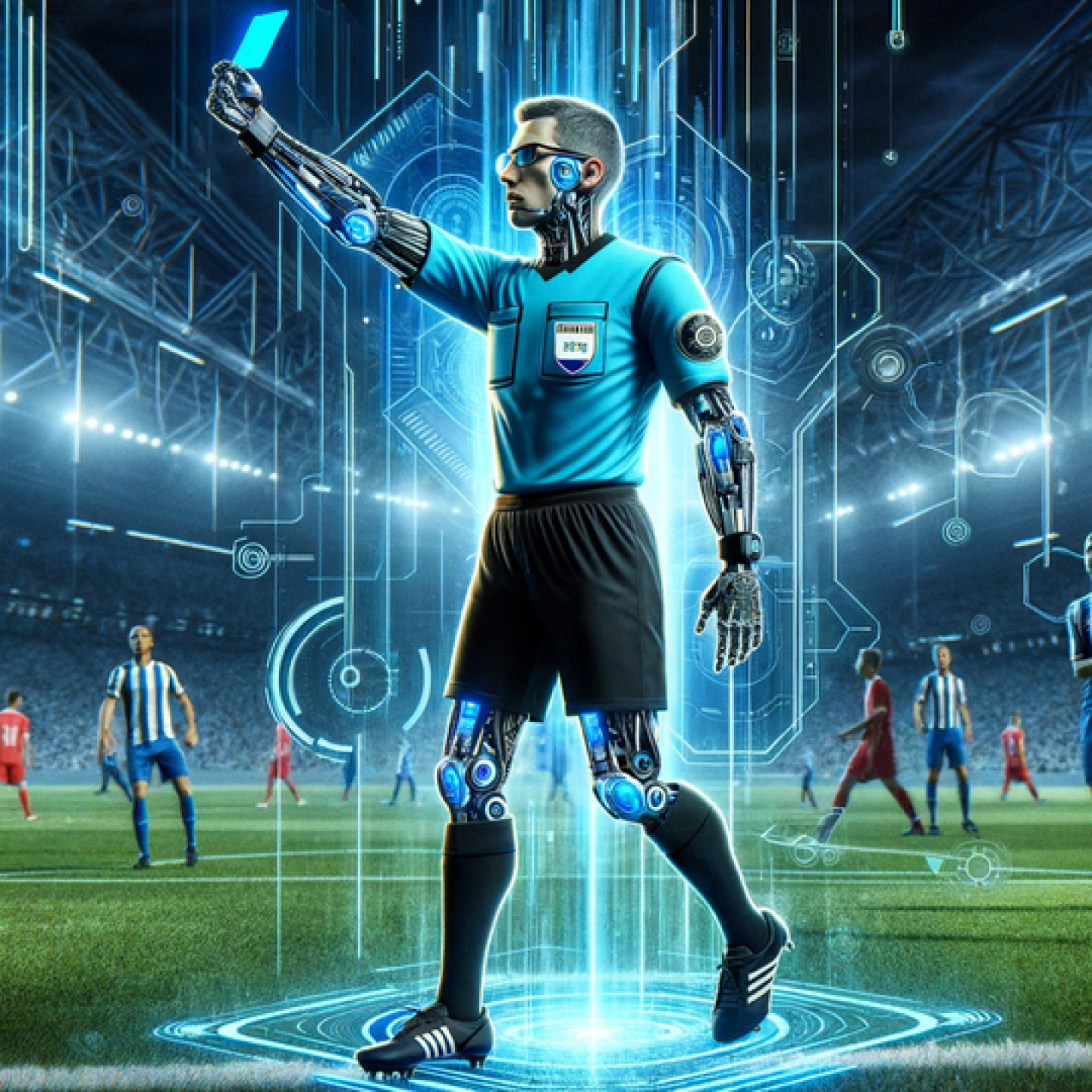
The EPL begins experimenting with advanced VAR technology, powered by AI, to make real-time decisions with higher accuracy, reducing the controversies around refereeing decisions.
2026:
Introduction of the blue card rule, revolutionizing the game by adding a new layer of strategy and discipline.
The introduction of the blue card rule by the International Football Association Board in 2026 (IFAB) marked a significant evolution in football's disciplinary system, aimed at curbing dissent and reducing cynical fouls. Implemented as part of trials to assess its effectiveness in professional football, the blue card serves as an intermediary sanction between a yellow and a red card, allowing referees to send players to a 10-minute sin bin for specific infractions. This innovation seeks to maintain the flow of the game while enforcing discipline, reducing the abuse referees face, and emphasizing respect on the pitch. The adoption of blue cards introduces a new strategic dimension, as teams must adapt to temporary numerical disadvantages, enhancing the sport's integrity and fairness.
Manchester United 9-1 Manchester City
The introduction of the "sin bin" rule into football, allowing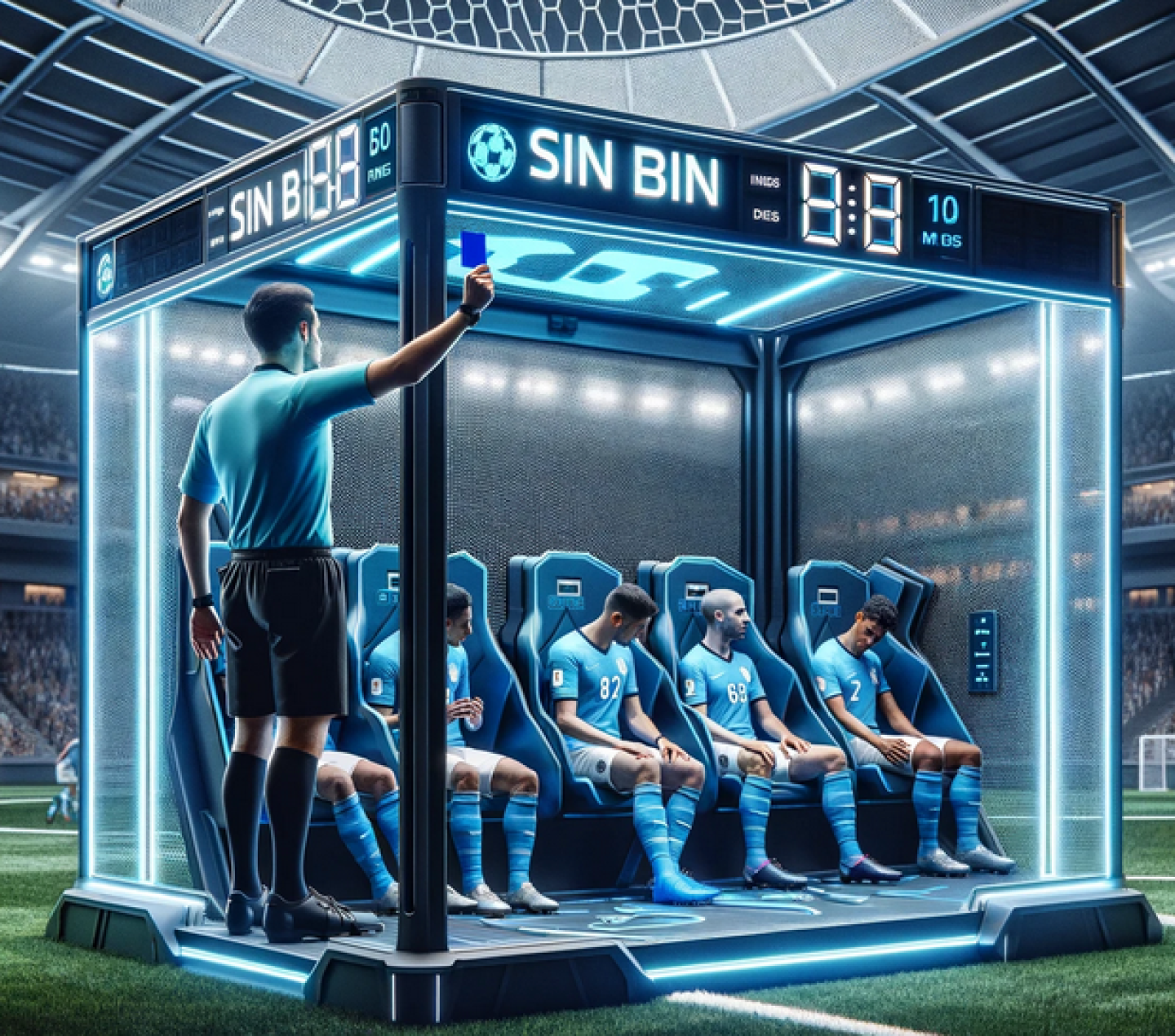 players to be temporarily removed from the game for 2, 5, or even 10 minutes for certain infractions, significantly altered the dynamics of the sport. This rule, borrowed from ice hockey, introduced a strategic layer previously unseen in football, forcing teams to adapt their tactics on the fly whenever they found themselves temporarily short-handed.
players to be temporarily removed from the game for 2, 5, or even 10 minutes for certain infractions, significantly altered the dynamics of the sport. This rule, borrowed from ice hockey, introduced a strategic layer previously unseen in football, forcing teams to adapt their tactics on the fly whenever they found themselves temporarily short-handed.
The most dramatic illustration of this rule's impact occurred during a fiercely contested Manchester derby. In an unprecedented turn of events, Manchester City found themselves with five players successively sent to the sin bin for various offences. This left the team at a staggering numerical disadvantage, playing with just six outfield players against Manchester United's full squad. United seized upon this advantage ruthlessly, exploiting the open spaces and diminished resistance. After winning 11 corners, they hammered in seven goals during the periods City were undermanned.
The saying "What Manchester does today, the world does tomorrow" never rang truer, as this match, watched by millions worldwide, became an instant classic, showcasing the dramatic swings the sin bin rule could produce. The excitement and unpredictability it introduced to the game were talked about in every corner of the globe, setting a precedent for how impactful and strategic football could be with this rule in play.
For City, the match ended in a historic 9-1 defeat, a result that offered little consolation and highlighted the potential consequences of the sin bin rule. The fallout from this game underscored the need for discipline and adaptability, as the sin bin rule added a new dimension to football's tactical battles, making every minute and every decision on the pitch even more critical.
Think you can predict the future? Join one of our Goal Gurus prediction leagues click here.
2027:
Elon Musk, after pioneering groundbreaking advancements in both the space and automotive industries, sets his sights on an ambitious new venture that not only reshapes his business portfolio but also the sporting world. In a bold move, Musk acquires Nissan's sprawling Sunderland plant, along with its associated lithium battery factories, signaling the inception of Tesla's next innovative leap: the production of the new Tesla Model Z, right from the heart of Sunderland. This strategic acquisition marks a significant milestone, transforming Sunderland into a pivotal hub for Tesla's European operations and innovation in electric vehicle production.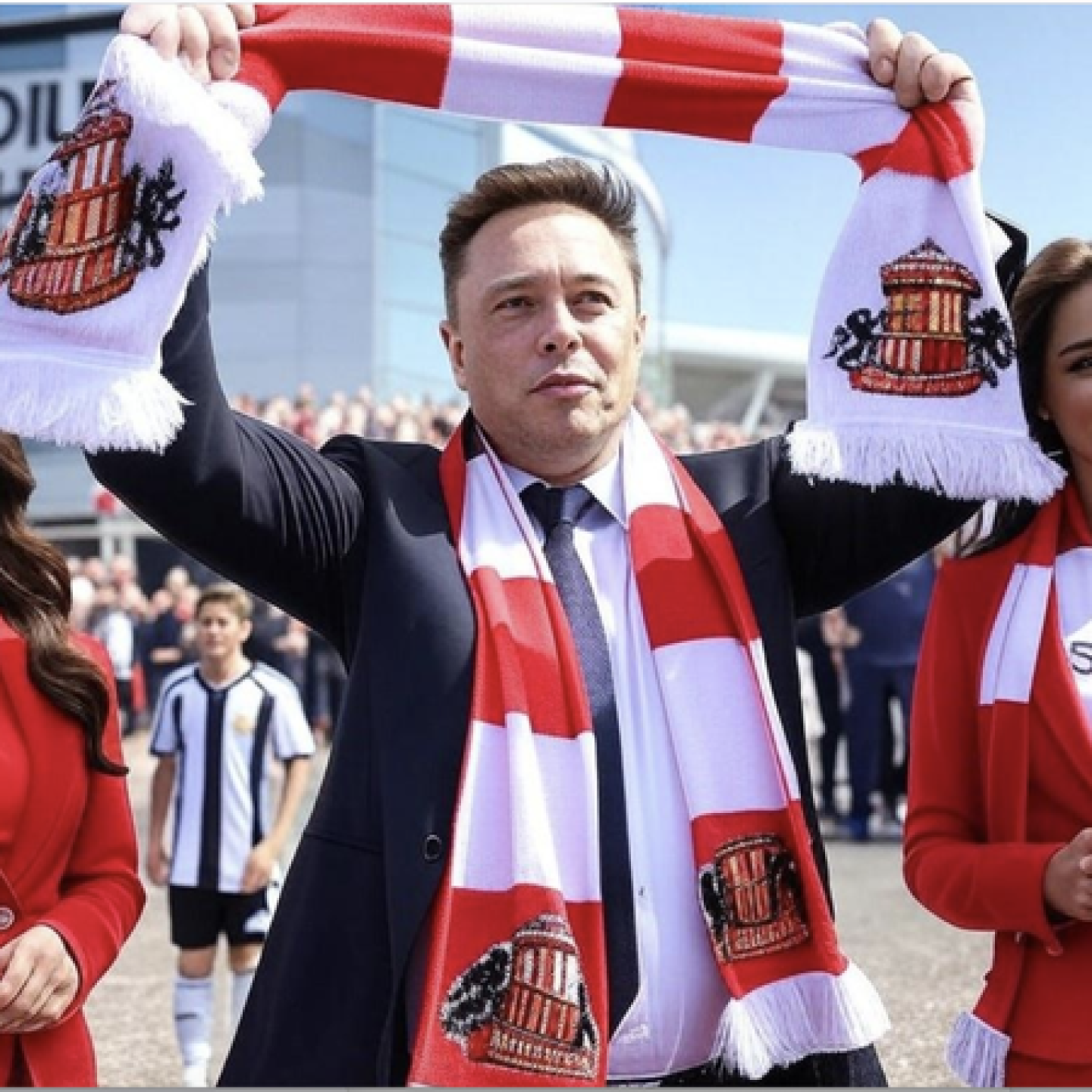
The venture leads Musk to a Sunderland AFC match, sparking an unexpected love affair with the club and its passionate fanbase, the Mackems. Captured by the spirit of the game and the fervent support of the Sunderland supporters, Musk's visit to the match becomes a turning point. Landing at Newcastle Airport, Musk makes a symbolic gesture that instantly endears him to the Sunderland faithful. Draped in a red and white scarf, he jubilantly proclaims "Haway The Lads!" to the eager press gathered for the car plant takeover announcement. This moment, echoing the memorable visit of former US President Jimmy Carter to the region, ignites a wave of excitement and pride among Sunderland fans while simultaneously stirring a sense of rivalry and dismay among Newcastle United supporters, who are left "Fewming" at the sight. 
This iconic scene cements Musk's status as a beloved figure in Sunderland, transcending his role as a global tech titan to become a part of the local cultural fabric. Tesla's takeover of the UK's largest car factory not only revolutionizes the automotive industry but also brings a newfound energy and optimism to Sunderland AFC. As the official sponsors of the club, Tesla's involvement heralds a new era of innovation, sustainability, and success, both on and off the pitch. Under Musk's stewardship, Sunderland AFC embarks on a transformative journey, powered by technology and innovation, mirroring the ambition and forward-thinking ethos of its new owner and the revolutionary spirit of its main sponsor.
SUNDERLAND FANS : Think you can predict the future? Join our Goal Gurus prediction league click here.
2028: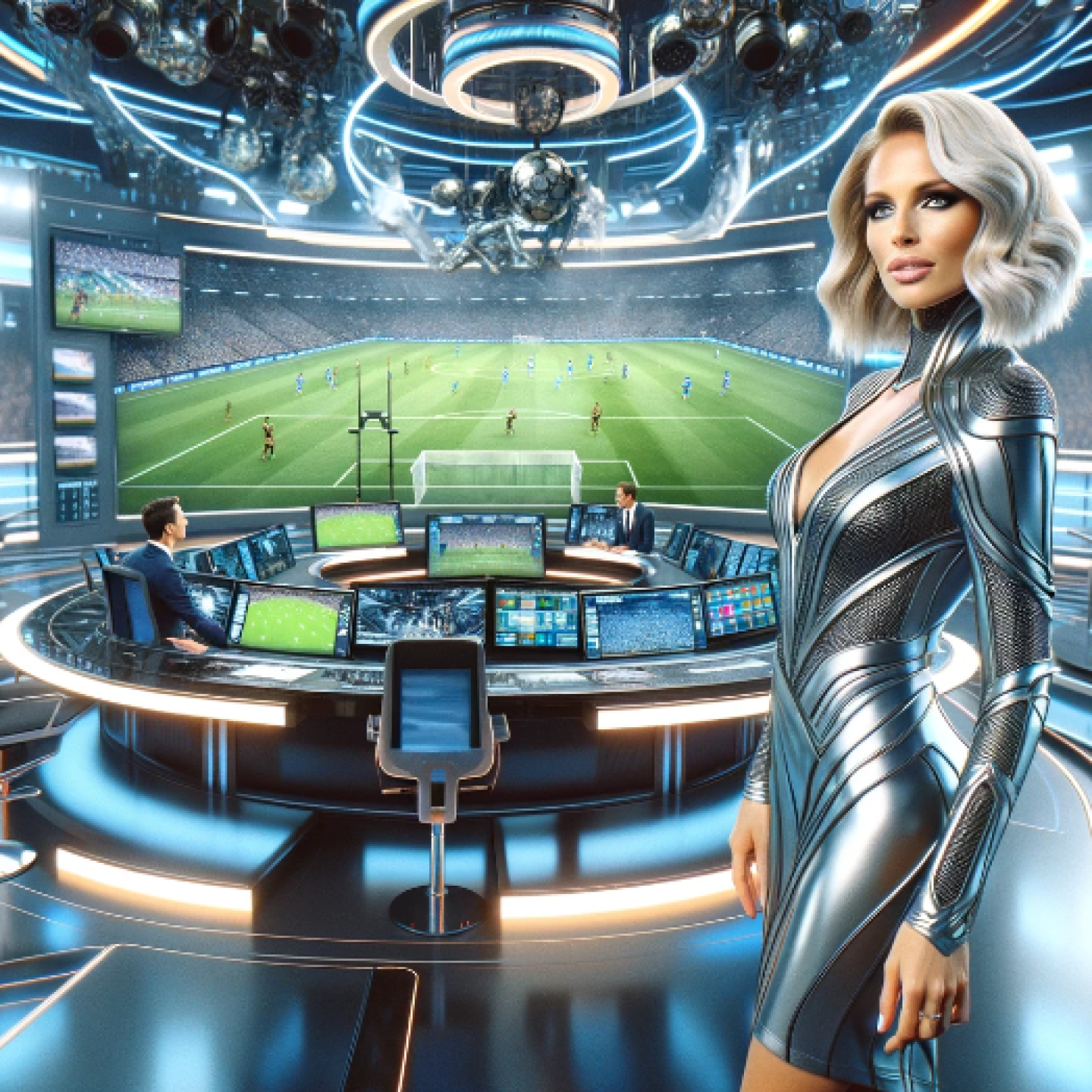
A breakthrough in injury prevention technology, incorporating wearable tech that predicts and prevents potential injuries, significantly lowering the rate of player injuries.
The rise of virtual reality (VR) fan experiences begins, allowing fans from around the globe to experience games live, as if they were in the stadium.
In March 2029, the football world witnessed a publicity stunt that transcended the boundaries of Earth itself, courtesy of Sunderland AFC's visionary chairman, Elon Musk. Following his takeover in 2027, Musk, ever the showman, decided to eclipse his own 2018 spectacle of launching a Tesla Roadster into space to the tune of David Bowie's "Space oddity". This time, his ambition was set on the Moon, aiming to land a Tesla Model Z adorned in the red and white stripes of Sunderland AFC on the lunar surface. 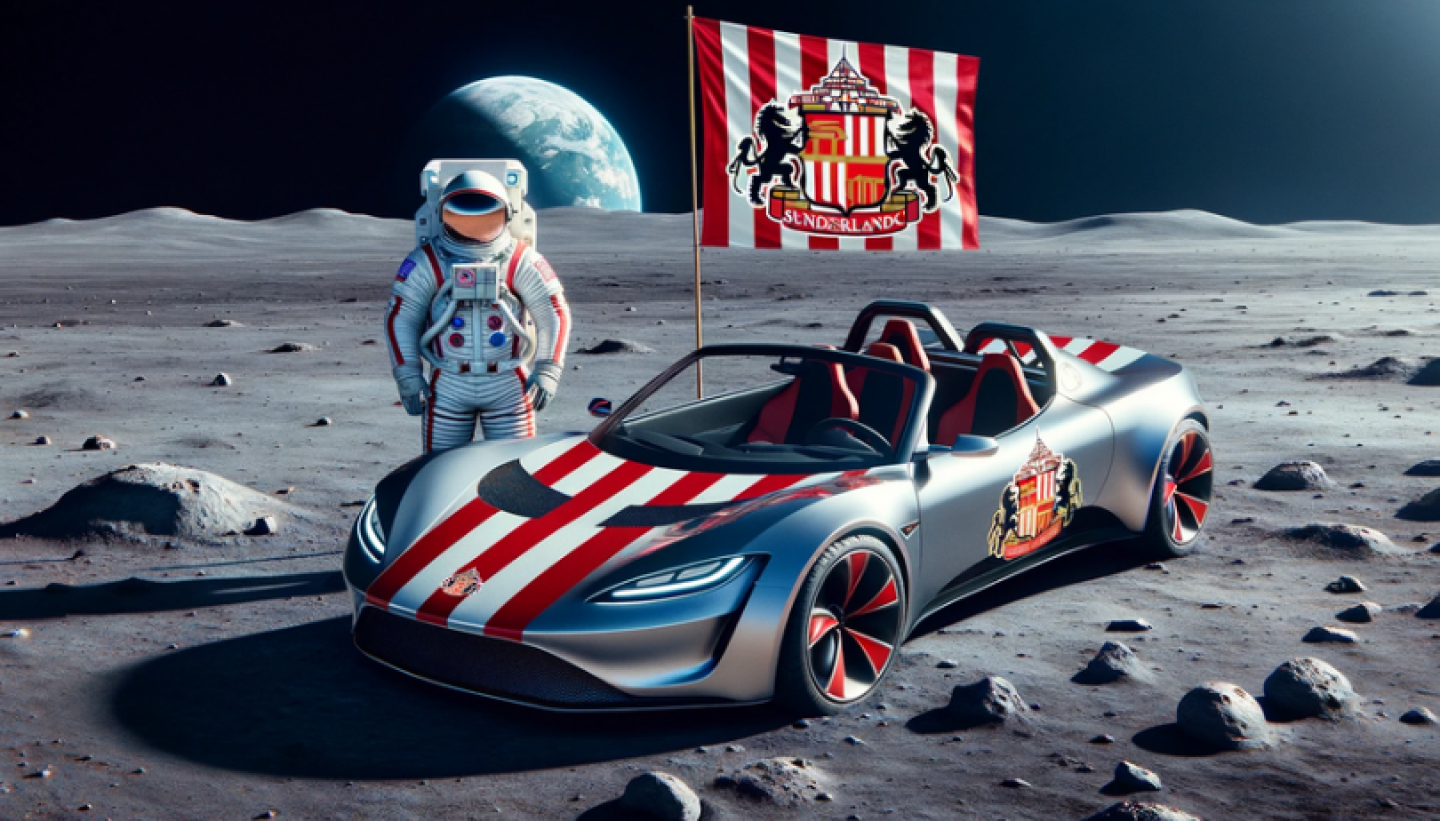
This interstellar endeavour was not just a feat of technological prowess but a cheeky retort to years of football rivalry banter. Newcastle United fans had long taunted their Sunderland counterparts with the chant "Have you seen a Mackem in Milan?"—a playful jibe at Sunderland's absence from European football's glamorous stages. Musk's lunar mission provided the perfect opportunity for a comeback that was literally out of this world.
The SpaceX Dragon capsule, carrying the Sunderland-striped Tesla Model Z along with two Tesla bots clad in the club's kit, made a historic touchdown on the Moon. These weren't ordinary robots; Musk declared them devout Sunderland fans, proudly "built at his new Washington plant," tying the mission back to the club's local roots. Upon the successful landing and the planting of the Sunderland crest on the lunar surface, Musk proclaimed to the world, "I've put a Mackem on the Moon."
This galactic achievement spurred Sunderland fans to craft a new chant, "Have you ever seen a Geordie on the Moon?"—a witty riposte to the Newcastle faithful. The stunt not only marked a monumental moment in the history of football rivalries but also symbolized the boundless possibilities when ambition, technology, and sports fandom collide. As the world tuned in to witness this historic moment, the playful banter between the two clubs reached new, unprecedented heights, ensuring that the story of the day a Mackem landed on the Moon would be sung in the stands for generations to come.
2032:
In a groundbreaking move that reshaped the landscape of British football, 2032 became the year the Old Firm giants, Glasgow Celtic and Glasgow Rangers, 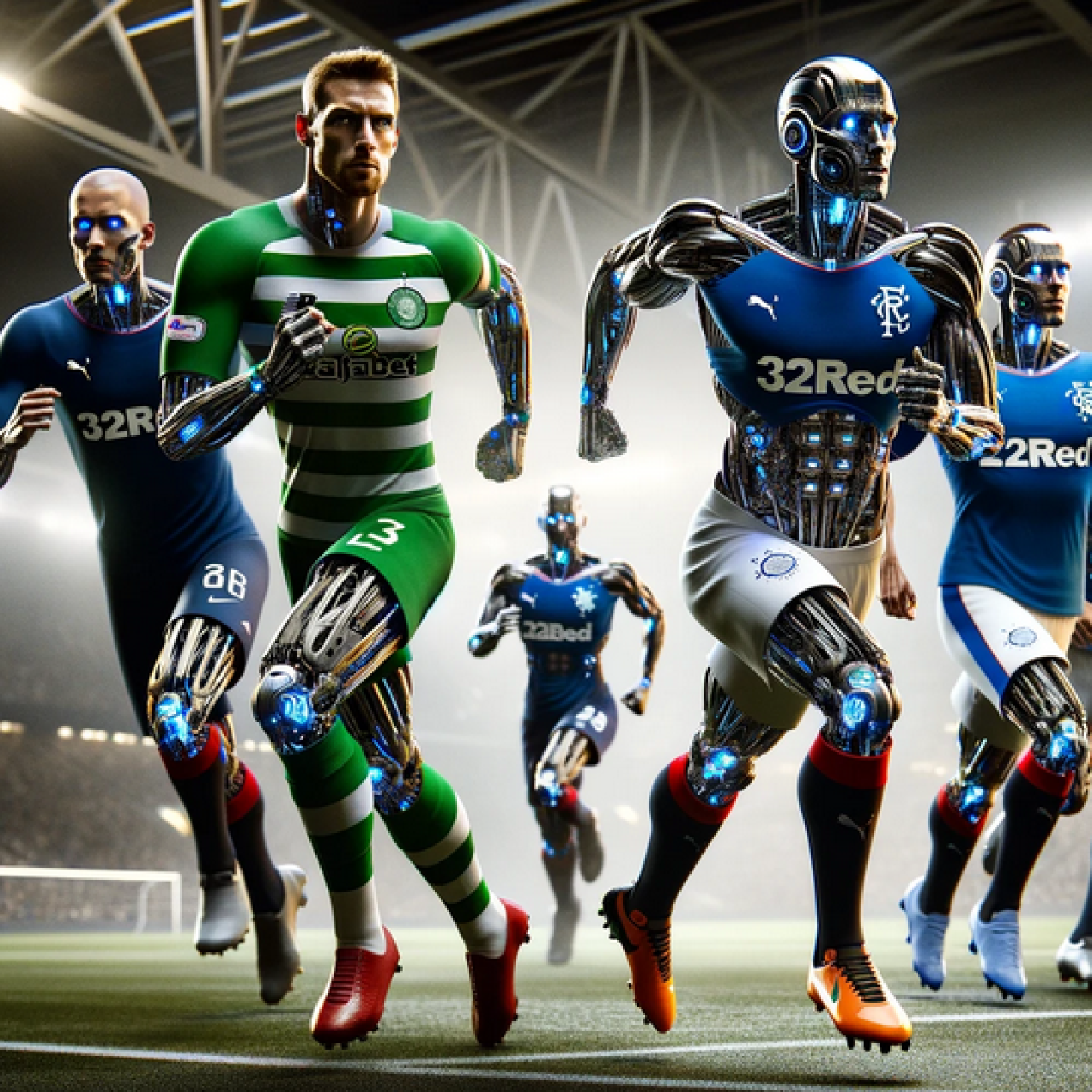 transcended traditional boundaries by joining the English Premier League. This historic decision marked the EPL's ambitious expansion beyond England, integrating two of Scotland's most storied clubs into its competitive fold. This pivotal moment, underscored by this visual spectacle of cutting-edge, augmented reality players, highlights the ever-evolving nature of football, where tradition meets innovation. As Celtic and Rangers step into the EPL, they carry forward their historic rivalry and legacy into new battles, signaling the start of an exhilarating chapter in the annals of football, where the past and future collide to create a spectacle unlike any before.
transcended traditional boundaries by joining the English Premier League. This historic decision marked the EPL's ambitious expansion beyond England, integrating two of Scotland's most storied clubs into its competitive fold. This pivotal moment, underscored by this visual spectacle of cutting-edge, augmented reality players, highlights the ever-evolving nature of football, where tradition meets innovation. As Celtic and Rangers step into the EPL, they carry forward their historic rivalry and legacy into new battles, signaling the start of an exhilarating chapter in the annals of football, where the past and future collide to create a spectacle unlike any before.
Think you can predict the future? Join one of our Goal Gurus prediction leagues click here.
2035: 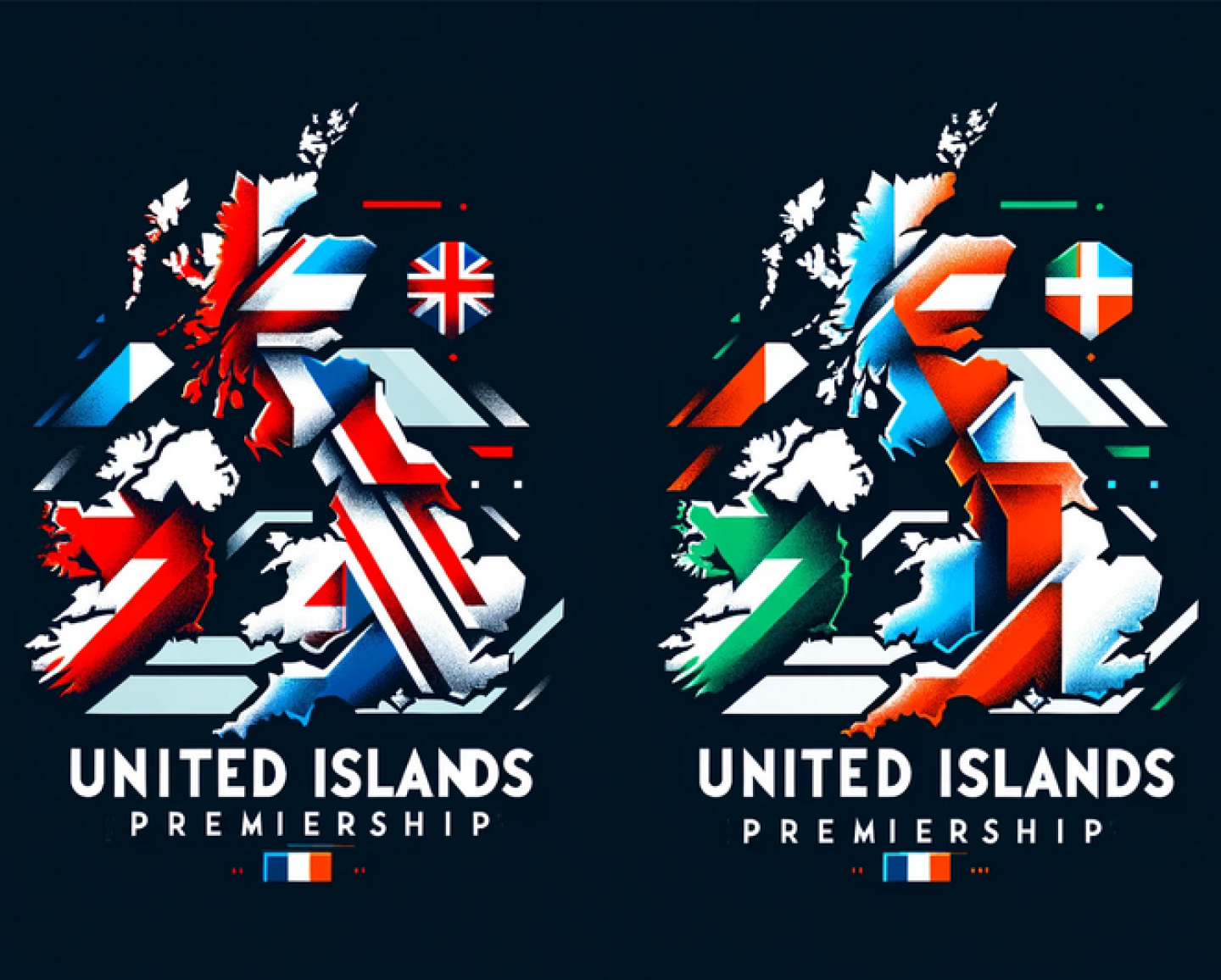
The creation of the United Islands Premiership (UIP), merging teams from Ireland, Northern Ireland, Scotland, England, and Wales, in response to the geopolitical restructuring of the UK.
2036
In 2036, Newcastle United icon Alan Shearer 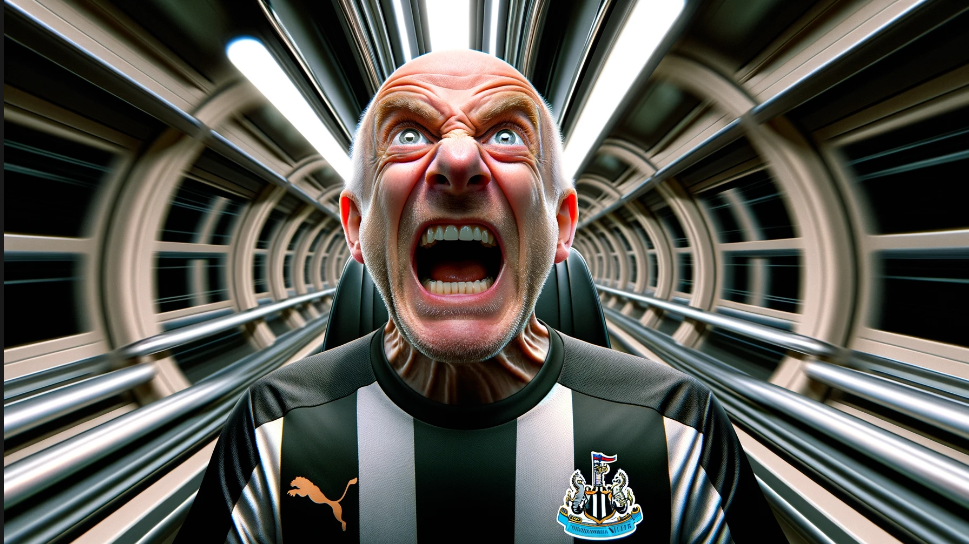 inaugurated the Tesla Hyperloop terminal beneath Tyneside's Tyne Tunnel, marking a revolutionary leap in travel. This futuristic mode of transportation, connecting Tyneside directly to Saudi Arabia, has compressed a journey that traditionally spanned seven hours by jet to a mere 38 minutes. However, this remarkable innovation comes with its own set of challenges, notably the extreme G-forces experienced during travel. These forces, while safely within operational limits, have been known to induce temporary discomfort among passengers, a phenomenon Alan Shearer himself encountered on the Hyperloop's maiden voyage.
inaugurated the Tesla Hyperloop terminal beneath Tyneside's Tyne Tunnel, marking a revolutionary leap in travel. This futuristic mode of transportation, connecting Tyneside directly to Saudi Arabia, has compressed a journey that traditionally spanned seven hours by jet to a mere 38 minutes. However, this remarkable innovation comes with its own set of challenges, notably the extreme G-forces experienced during travel. These forces, while safely within operational limits, have been known to induce temporary discomfort among passengers, a phenomenon Alan Shearer himself encountered on the Hyperloop's maiden voyage.
NEWCASTLE FANS : Think you can predict the future? Join our Goal Gurus prediction league click here.
This side effect, humorously termed the "Shearer shakes," has become synonymous with the minor after effects of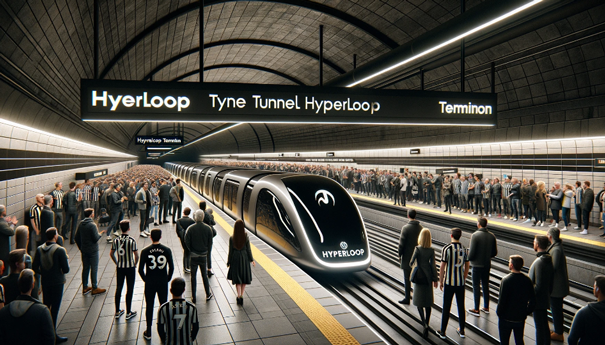 Hyperloop travel, blending a touch of light-heartedness into the marvels of modern engineering.
Hyperloop travel, blending a touch of light-heartedness into the marvels of modern engineering.
2037:
The Champions League is reimagined as the Hemisphere League (HEMIS), introducing teams from outside Europe, including Saudi Arabia, African nations, and Israel.
2040:
In the year 2040, a seismic shift occurred in the football world, one that would forever alter the landscape of the sport in Europe. Liverpool FC, a club with a rich history and a global fanbase, was relocated to Dublin by its American owners. This move, unprecedented in European football, was inspired by a practice common in North American sports leagues such as the NFL and NHL, where teams like the Oakland Raiders' move to Las Vegas or the Quebec Nordiques' transformation into the Colorado Avalanche had reshaped the identity and affiliations of these franchises.
The decision to relocate Liverpool FC across the Irish Sea was driven by a combination of financial incentives, market expansion strategies, and the lure of establishing a unique footballing identity within a new, passionate fanbase. This bold move was met with a mix of outrage, disbelief, and excitement, sparking intense debates about the future of football, club loyalty, and the commercialization of the sport.
Amidst the upheaval, a phoenix rose from the ashes in the city of Liverpool. 'Real Liverpool,' a club born out of protest and passion, emerged as a symbol of resistance against the franchise model of football. Mirroring the situation that once saw Wimbledon FC relocate and become MK Dons, leading to the creation of AFC Wimbledon by the original club's supporters, Real Liverpool was founded by disenfranchised fans determined to keep the spirit of their beloved club alive in its birthplace.
Fuelled by grassroots support and leveraging cutting-edge performance analytics, Real Liverpool quickly ascended through the ranks, capturing the hearts of fans craving the authenticity and heritage that the original club represented. The rivalry that ensued between Real Liverpool and Dublin Reds (the relocated Liverpool FC) became a focal point of the United Islands Premiership (UIP), embodying a clash of ideologies, histories, and footballing cultures. 
Think you can predict the future? Join on of our Goal Gurus prediction leagues click here.
The Dublin Reds, adopting their new identity with a blend of Liverpool's legacy and Irish fervor, created a unique footballing narrative. Their matches against Real Liverpool were charged with emotion, highlighting not only the competitive spirit of the game but also the deep, historical ties that bind communities to their clubs. This rivalry, set against the backdrop of the UIP, showcased the evolving nature of football, where tradition and innovation intersect, sparking debates about identity, loyalty, and the future direction of the sport.
As both clubs carved out their paths in this new era, the saga of Liverpool's relocation and the rise of Real Liverpool served as a testament to the enduring passion for football. It underscored the complexity of balancing commercial ambitions with the traditions and community ties that make the sport truly special, offering a compelling narrative that captivated fans worldwide and marked a new chapter in the annals of football history.
2040: 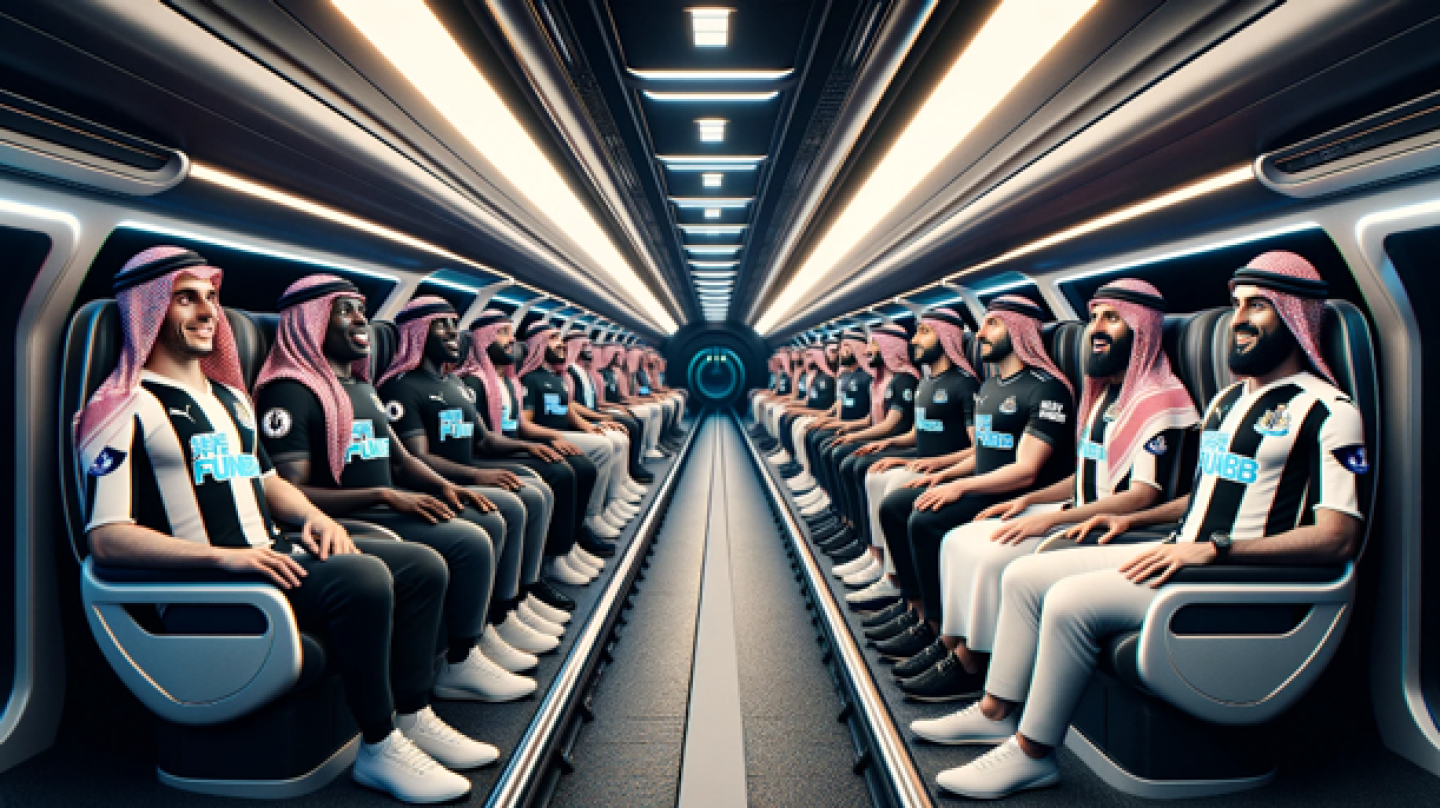
Later that year Newcastle United also made a groundbreaking move to Neom, Saudi Arabia, becoming the second EPL club to embrace the global franchise trend. Facilitated by a Tesla Hyperloop, this direct link between the North East of England and Neom aimed to keep the club connected to its roots while venturing into a new, futuristic market. 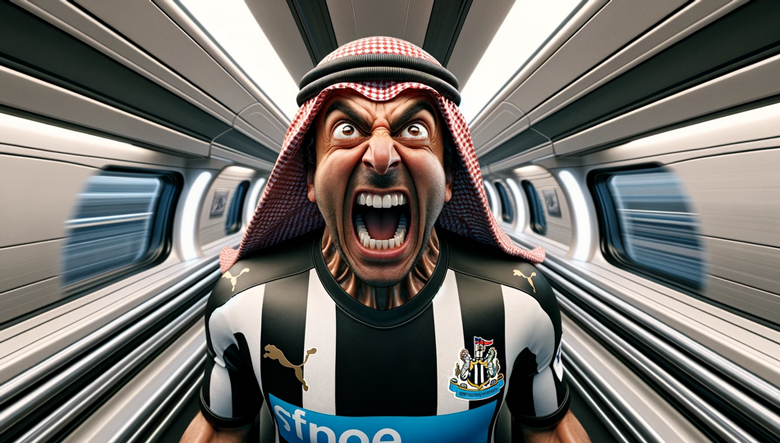
Neom, a city with ambitions of sustainability and innovation, represented a bold new chapter for Newcastle, despite controversies surrounding its development, including environmental and human rights concerns. This relocation sparked debate over the essence of football clubs, weighing the promise of global expansion against the values of tradition and community.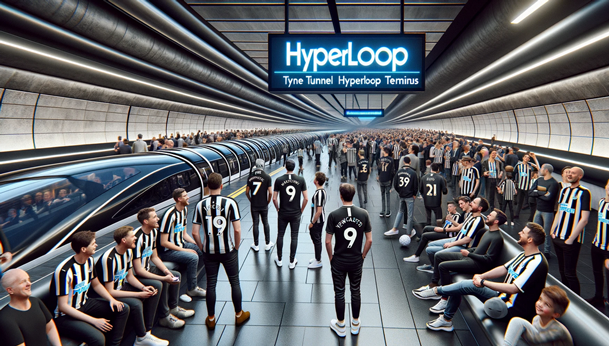
As Newcastle adapted to its ambitious new home, the world watched, pondering the future of football in the balance between heritage and the lure of modernization. This move not only tested the loyalty of fans but also set a precedent for the sport's evolution in the global era.
2041:
Sunderland unveils the Neurolink Stadium of Light, a state-of-the-art 90,000 seat arena, sponsored by Tesla and equipped with the latest in fan engagement technologies.
2043: 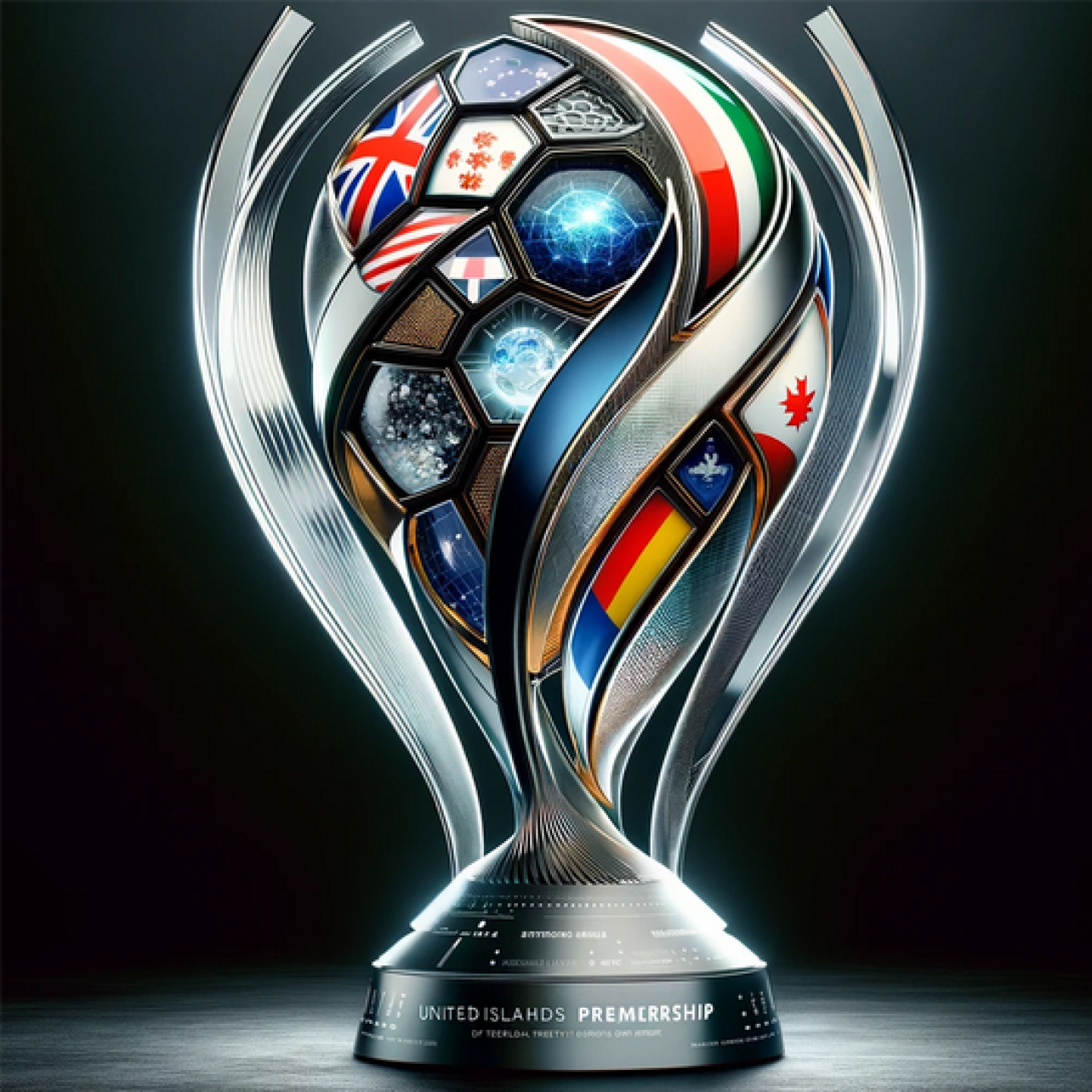
The global warming crisis leads to significant changes in football scheduling and locations, with Glasgow Rangers establishing a second ground in Fort William, Scotland, to adapt to warmer temperatures.
2045:
The EPL, now UIP, introduces hyperloop travel for teams, revolutionizing the logistics of football matches and reducing the environmental impact of travel.
2047: 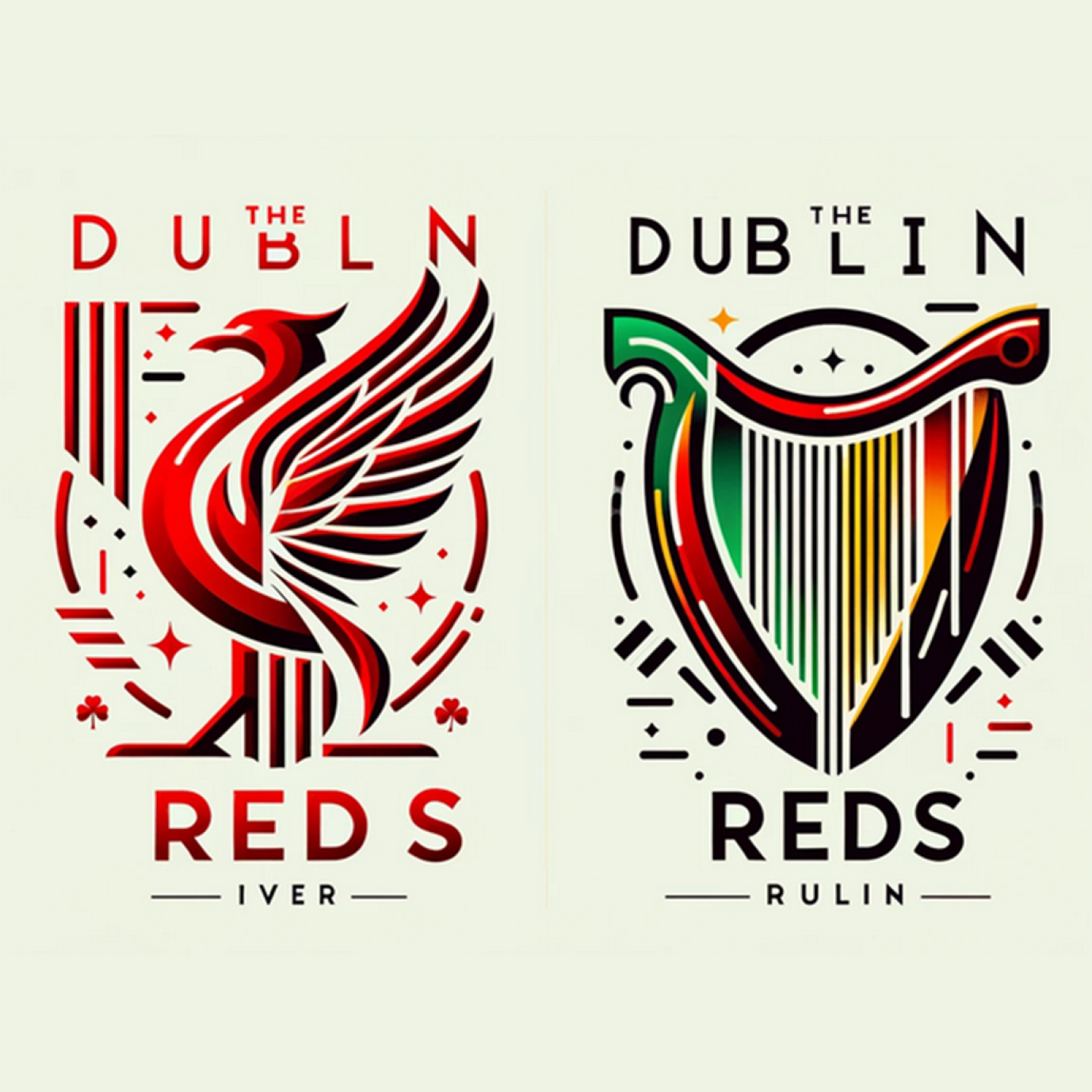
The rise of 'Real Liverpool' as a phoenix club, battling against Dublin (formerly Liverpool FC) in a rivalry reminiscent of the Wimbledon-MK Dons situation, symbolizes the changing identity and loyalties in football.
2049:
The UIP sees Sunderland, under the chairmanship of Elon Musk and the innovative coaching of Jordan Henderson, win the Premiership, epitomizing the fusion of technology, tradition, and talent in football.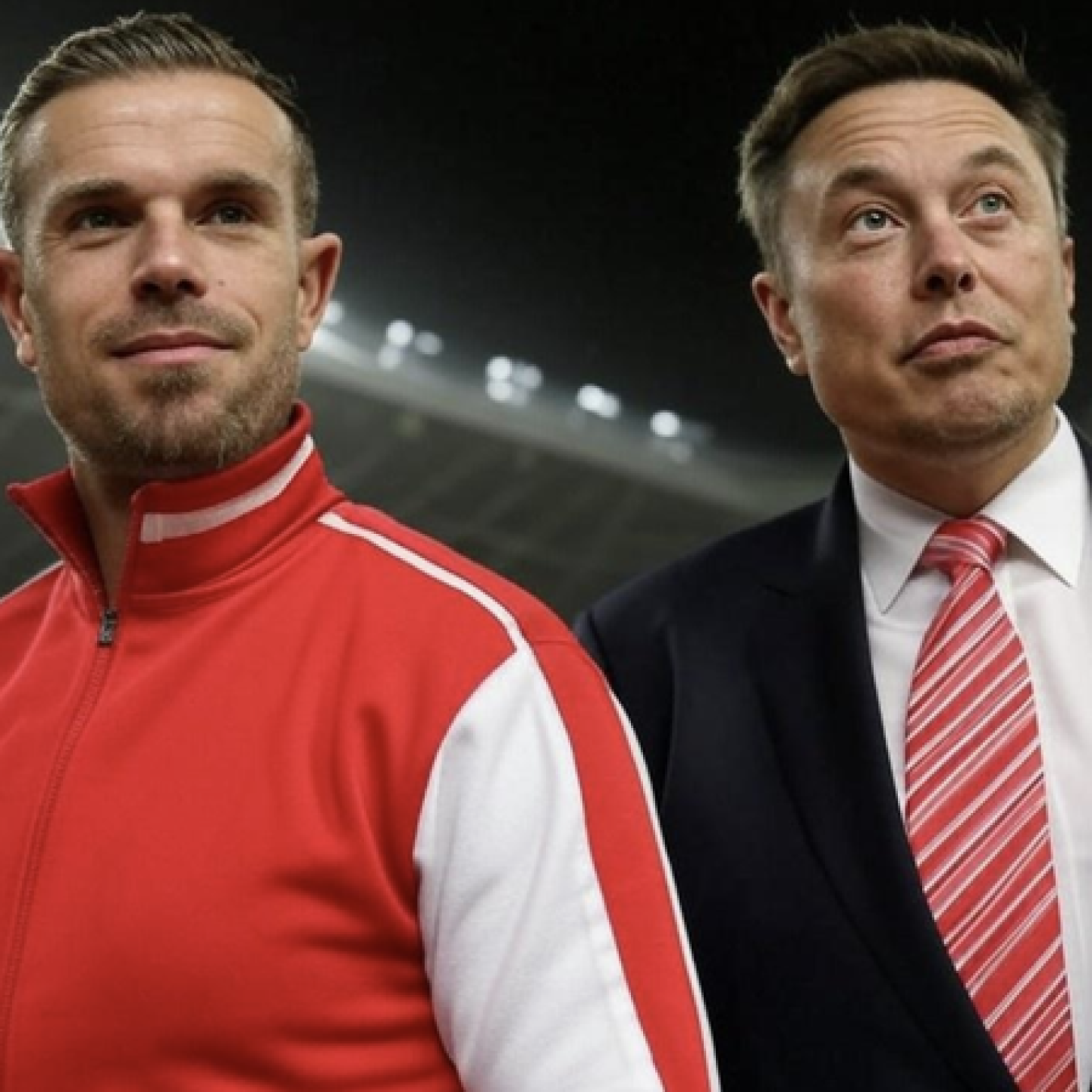
Premiership Champions: Arsenal
Runners Up: Manchester City 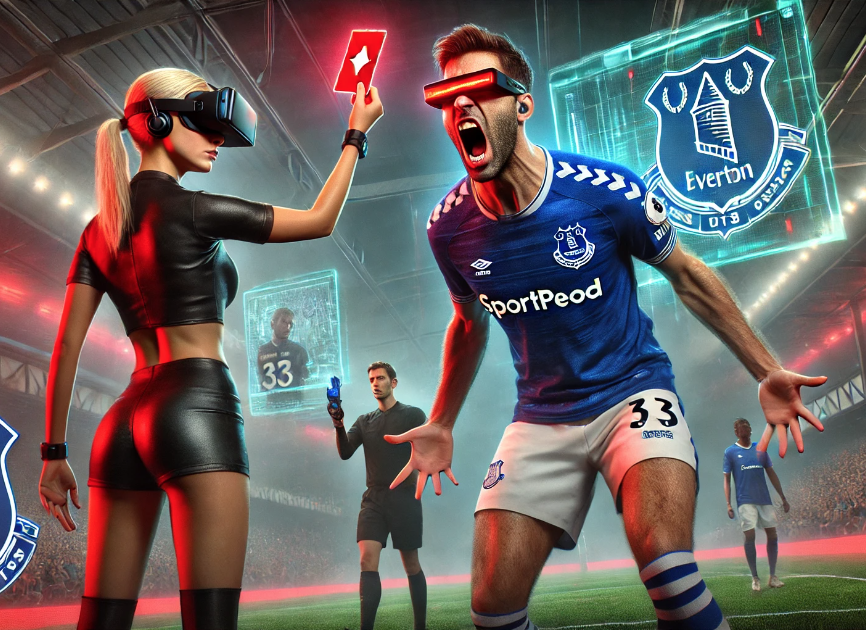
FA Cup Winners: Chelsea
Relegated: Ipswich Town, Wolves, Everton
Premiership Champions: Manchester United
Runners Up: Manchester City
FA Cup Winners: Arsenal
Relegated: Brentford, Ipswich Town, Bournemouth
Premiership Champions: Liverpool
Runners Up: Manchester City
FA Cup Winners: Tottenham Hotspur
Relegated: Leeds United, Fulham, Wolves
Premiership Champions: Chelsea 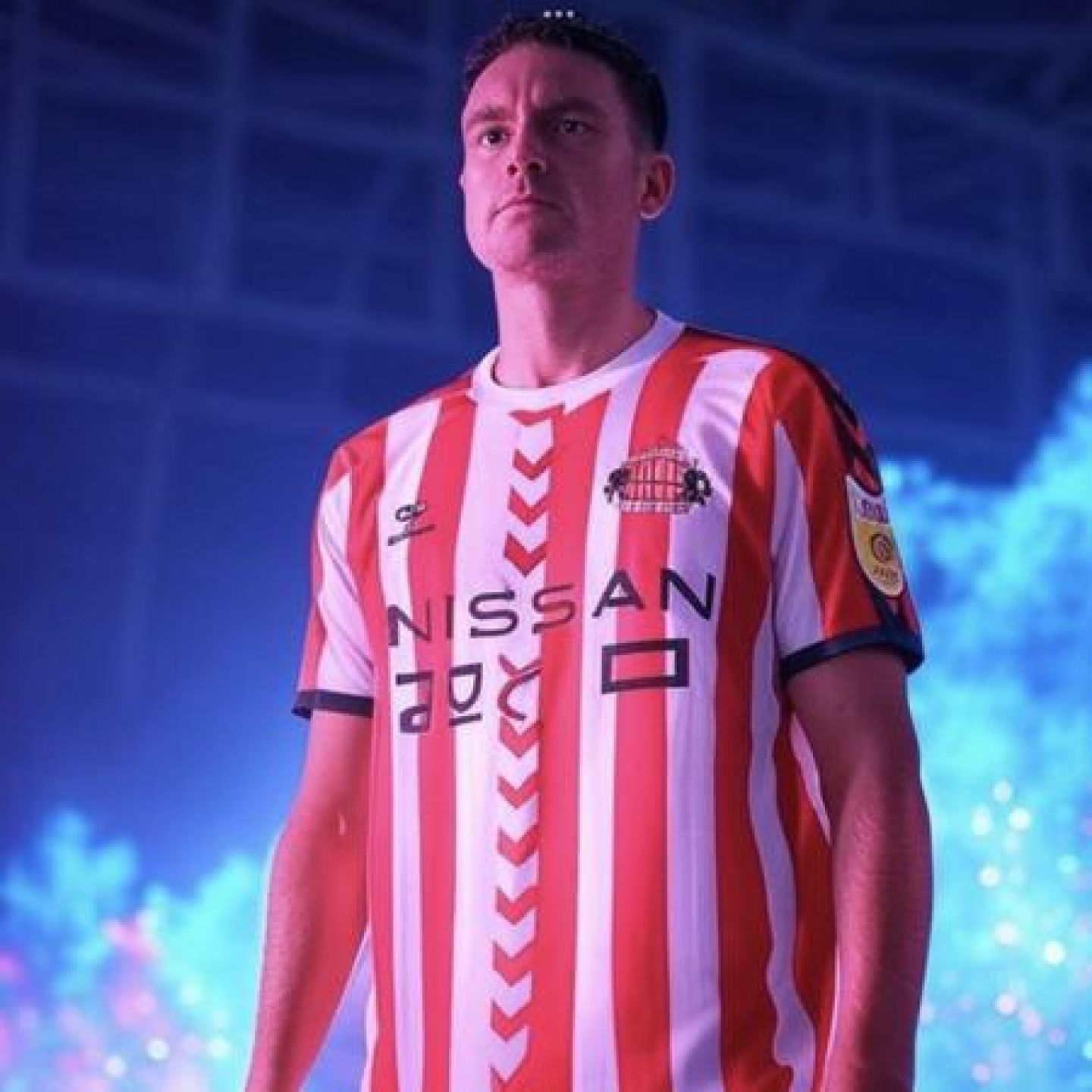
Runners Up: Manchester United
FA Cup Winners: Manchester City
Relegated: Crystal Palace, Aston Villa, Bournemouth
Premiership Champions: Arsenal
Runners Up: Liverpool
FA Cup Winners: Leicester City
Relegated: West Ham, Newcastle United, Southampton
Premiership Champions: Tottenham Hotspur
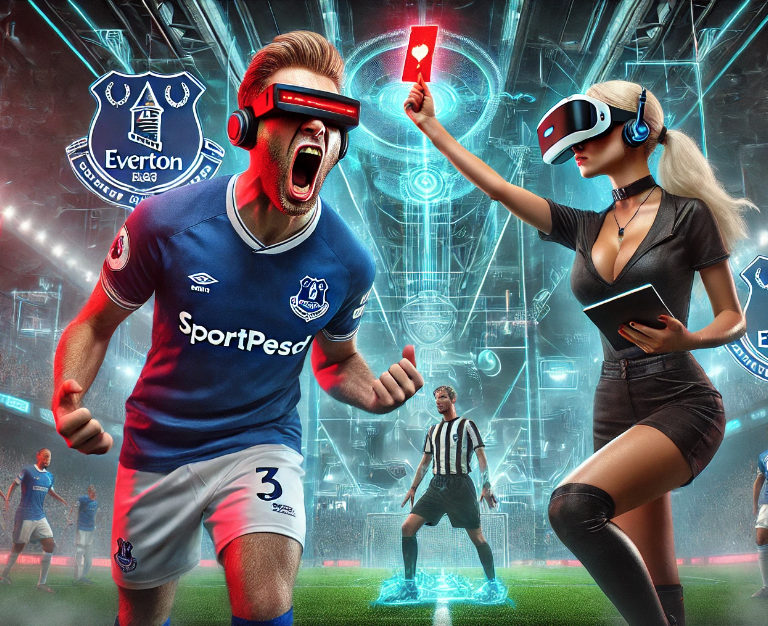
Runners Up: Chelsea
FA Cup Winners: Manchester United
Relegated: Everton, Wolves, Norwich
Premiership Champions: Manchester United
Runners Up: Arsenal
FA Cup Winners: Liverpool
Relegated: Sheffield United, Leeds United, Brighton
Premiership Champions: Chelsea
Runners Up: Manchester City
FA Cup Winners: Arsenal
Relegated: Brentford, Fulham, Crystal Palace
Premiership Champions: Glasgow Rangers (First season in EPL)
Runners Up: Glasgow Celtic
FA Cup Winners: Manchester United
Relegated: Aston Villa, Bournemouth, Watford
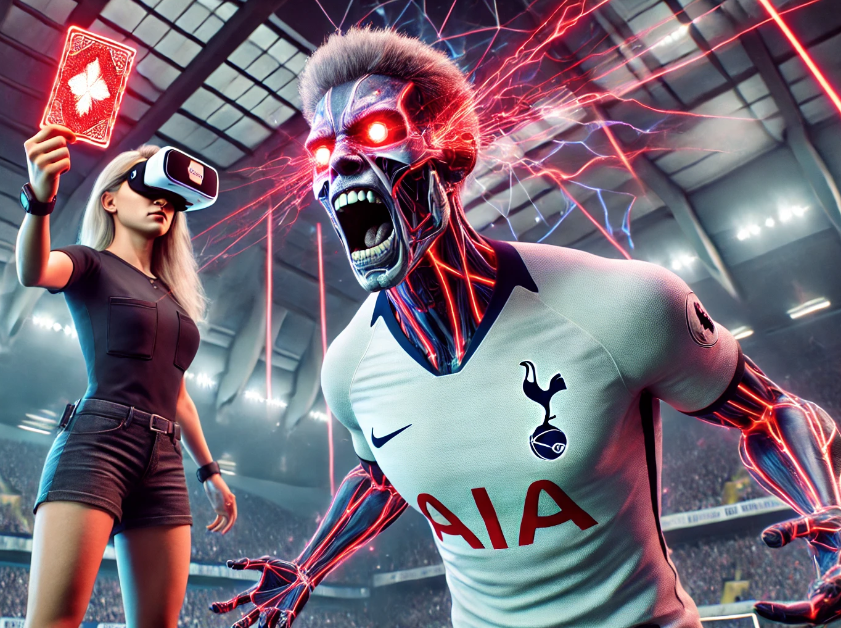
Premiership Champions: Manchester United
Runners Up: Chelsea
FA Cup Winners: Glasgow Rangers
Relegated: Southampton, West Ham, Wolves
Premiership Champions: Glasgow Celtic
Runners Up: Arsenal
FA Cup Winners: Tottenham Hotspur
Relegated: Norwich, Sheffield United, Leeds United
Premiership Champions: Liverpool
Runners Up: Manchester City
FA Cup Winners: Manchester United
Relegated: Brentford, Fulham, Crystal Palace
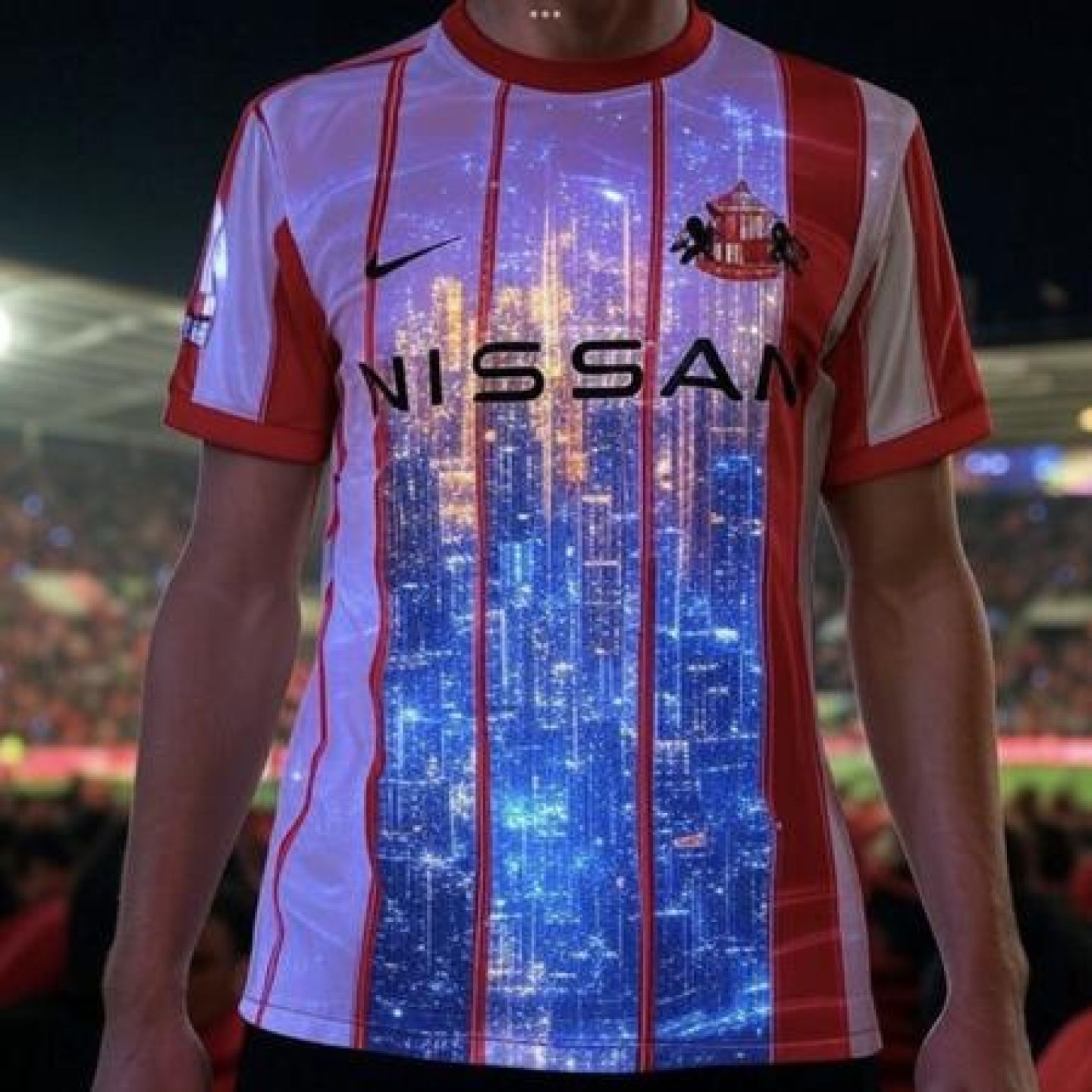
Premiership Champions: Arsenal
Runners Up: Glasgow Rangers
FA Cup Winners: Chelsea
Relegated: Aston Villa, Bournemouth, Watford
Premiership Champions: Manchester United
Runners Up: Glasgow Celtic
FA Cup Winners: Liverpool
Relegated: Southampton, West Ham, Wolves
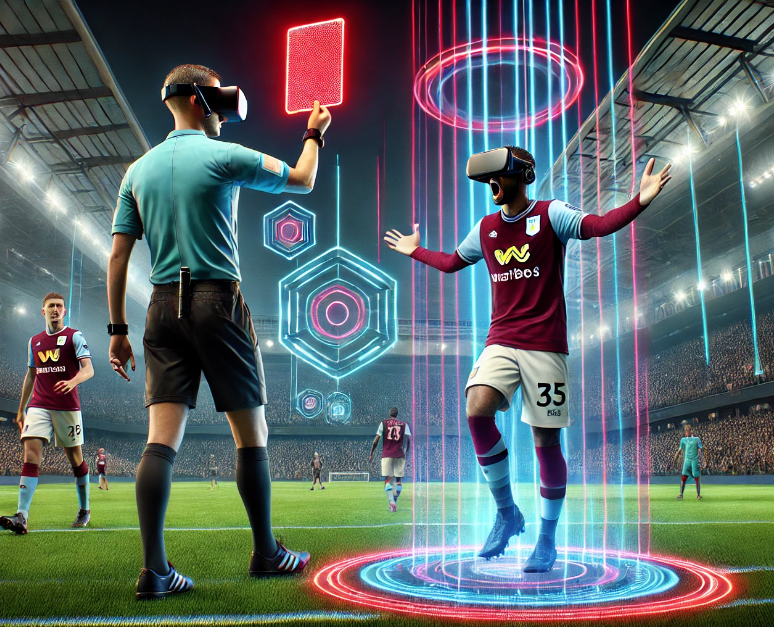
Premiership Champions: Chelsea
Runners Up: Tottenham Hotspur
FA Cup Winners: Glasgow Rangers
Relegated: Norwich, Sheffield United, Everton
Premiership Champions: Glasgow Rangers
Runners Up: Manchester United
FA Cup Winners: Arsenal
Relegated: Leeds United, Brentford, Fulham
Premiership Champions: Manchester City
Runners Up: Liverpool
FA Cup Winners: Chelsea
Relegated: Crystal Palace, Bournemouth, Aston Villa
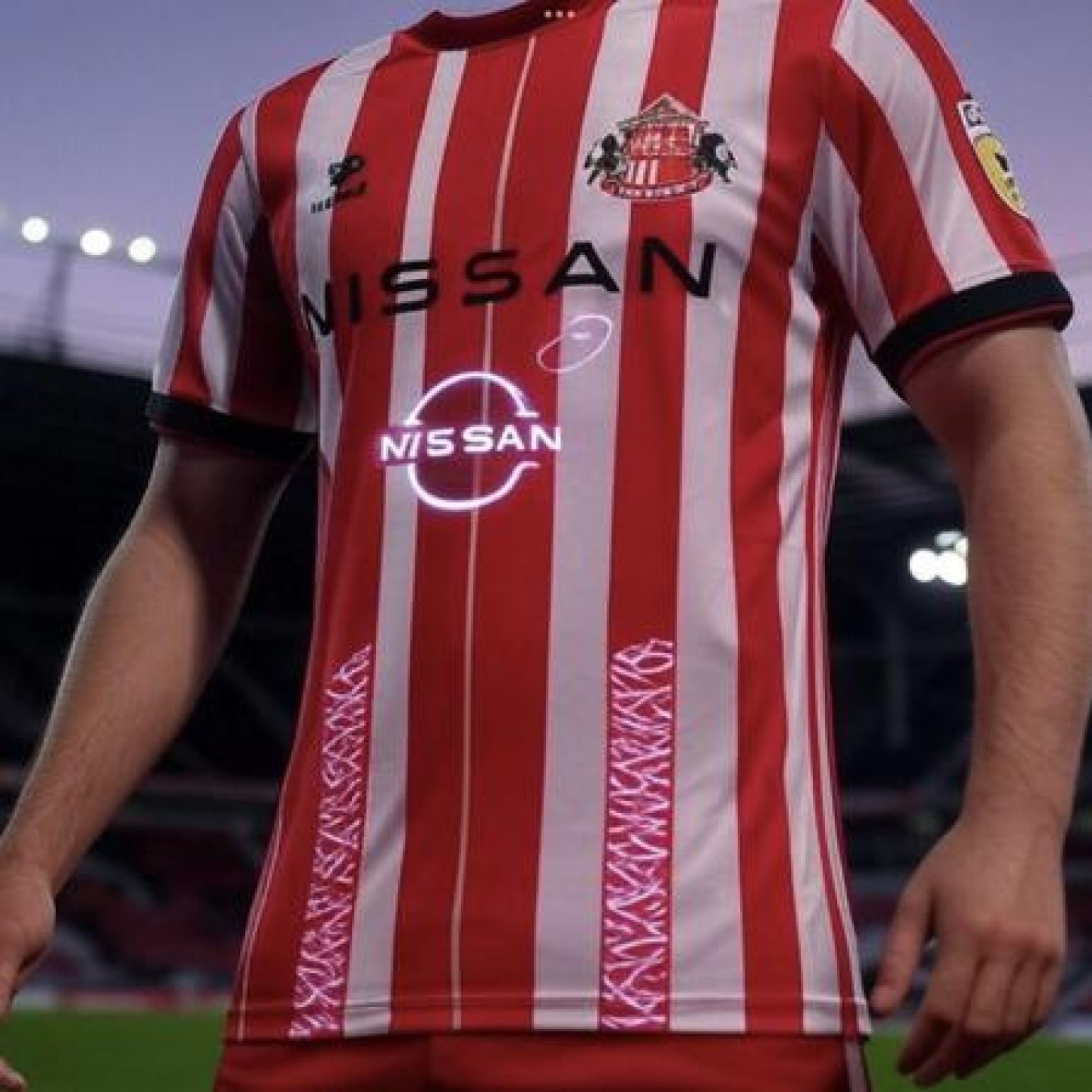
Premiership Champions: Arsenal
Runners Up: Chelsea
FA Cup Winners: Manchester United
Relegated: Watford, Southampton, West Ham
Premiership Champions: Tottenham Hotspur
Runners Up: Sunderland (Under Elon Musk)
FA Cup Winners: Glasgow Rangers
Relegated: Wolves, Norwich, Sheffield United
Premiership Champions: Sunderland (Under Elon Musk)
Runners Up: Arsenal
FA Cup Winners: Manchester City
Relegated: Everton, Brentford, Leeds
As the 2049-2050 season unfolds, football has transformed into a high-tech, global spectacle, deeply influenced by technological advancements, environmental considerations, and geopolitical shifts. The introduction of the blue card has added a strategic depth to the game, forcing teams to adapt their tactics and playstyles. Sunderland, with its visionary leadership and cutting-edge facilities, stands as a model of modern football, while the rivalry between Real Liverpool and Dublin Reds encapsulates the passion and tradition that remains at the heart of the game. 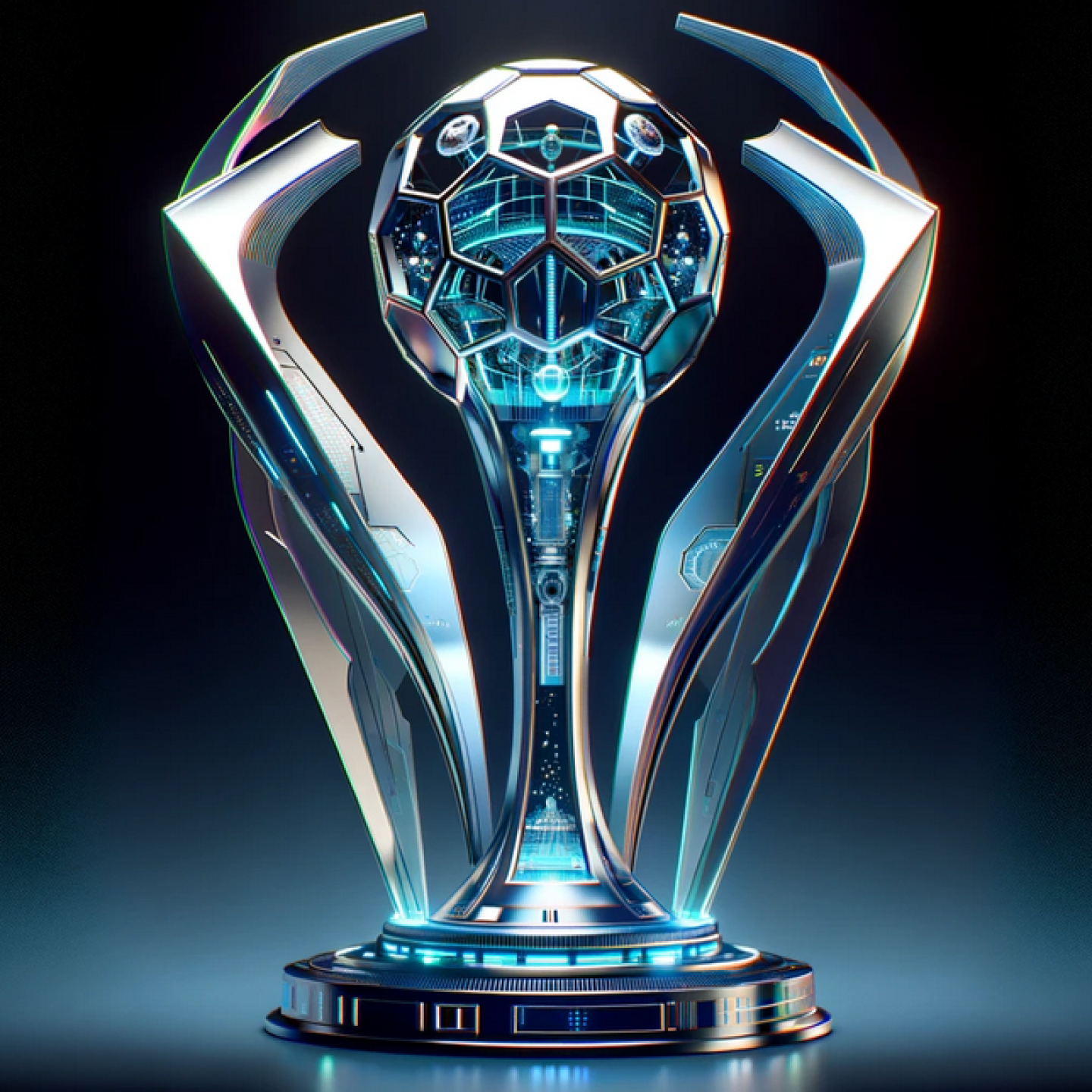
The UIP champions, Sunderland, sponsored by Tesla and led by a forward-thinking management team, highlight the successful integration of technology and football. Their home, the Neurolink Stadium of Light, is a marvel of modern engineering, offering immersive fan experiences and setting the standard for future football stadiums. The Netflix series (now on to its 17th series) "Sunderland Till I Die" continues to document their journey, capturing the imagination of fans worldwide.
The evolution of the EPL into the UIP, the emergence of the Hemisphere League, and the global expansion of football franchises reflect the sport's growing worldwide appeal and the impact of technological and societal changes. Football in 2050 is a testament to the game's ability to innovate and adapt, ensuring its place as the world's most beloved sport.
1 Manchester United
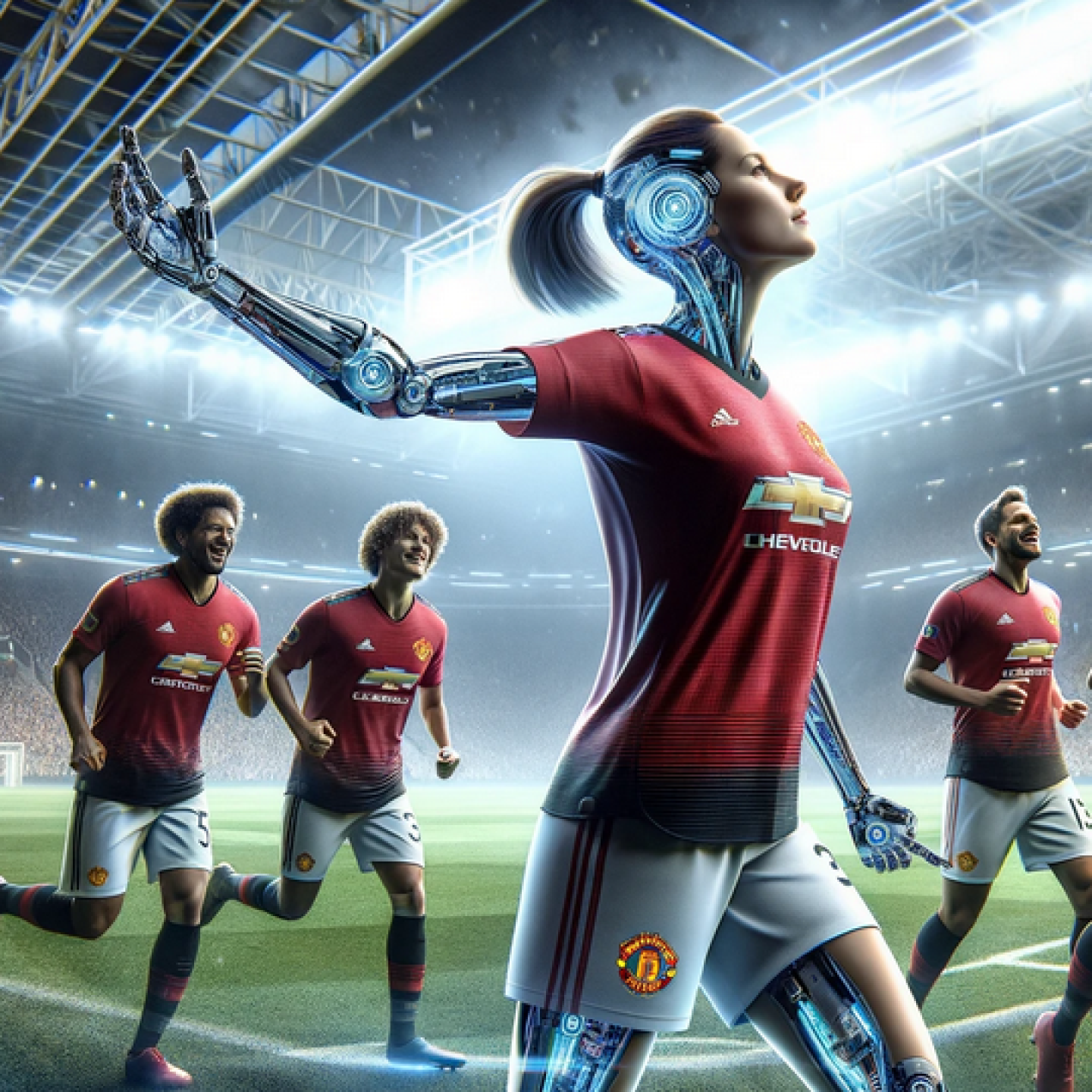 Evolution: Playing at the Sir Jim Ratcliffe Arena, Manchester United has maintained its status as a footballing powerhouse, blending rich tradition with modern enhancements in sports science and fan engagement. Managed by Brooklyn Beckham, the club has seamlessly integrated football heritage with contemporary culture, attracting global fanfare.
Evolution: Playing at the Sir Jim Ratcliffe Arena, Manchester United has maintained its status as a footballing powerhouse, blending rich tradition with modern enhancements in sports science and fan engagement. Managed by Brooklyn Beckham, the club has seamlessly integrated football heritage with contemporary culture, attracting global fanfare.
2 Arsenal
Evolution: Arsenal's commitment to stylish, attacking football remains unchanged, but their approach has evolved with tactical AI systems providing real-time match analysis. The Emirates Stadium, now a fully green-powered arena, reflects the club's commitment to sustainability and innovation on and off the pitch.
3 Glasgow Rangers
Evolution: With their second ground in Fort William, Rangers have adapted to climate change while remaining a dominant force in Scottish football. Their investment in global scouting networks, leveraging satellite technology, ensures a continuous influx of talent, maintaining their competitive edge. 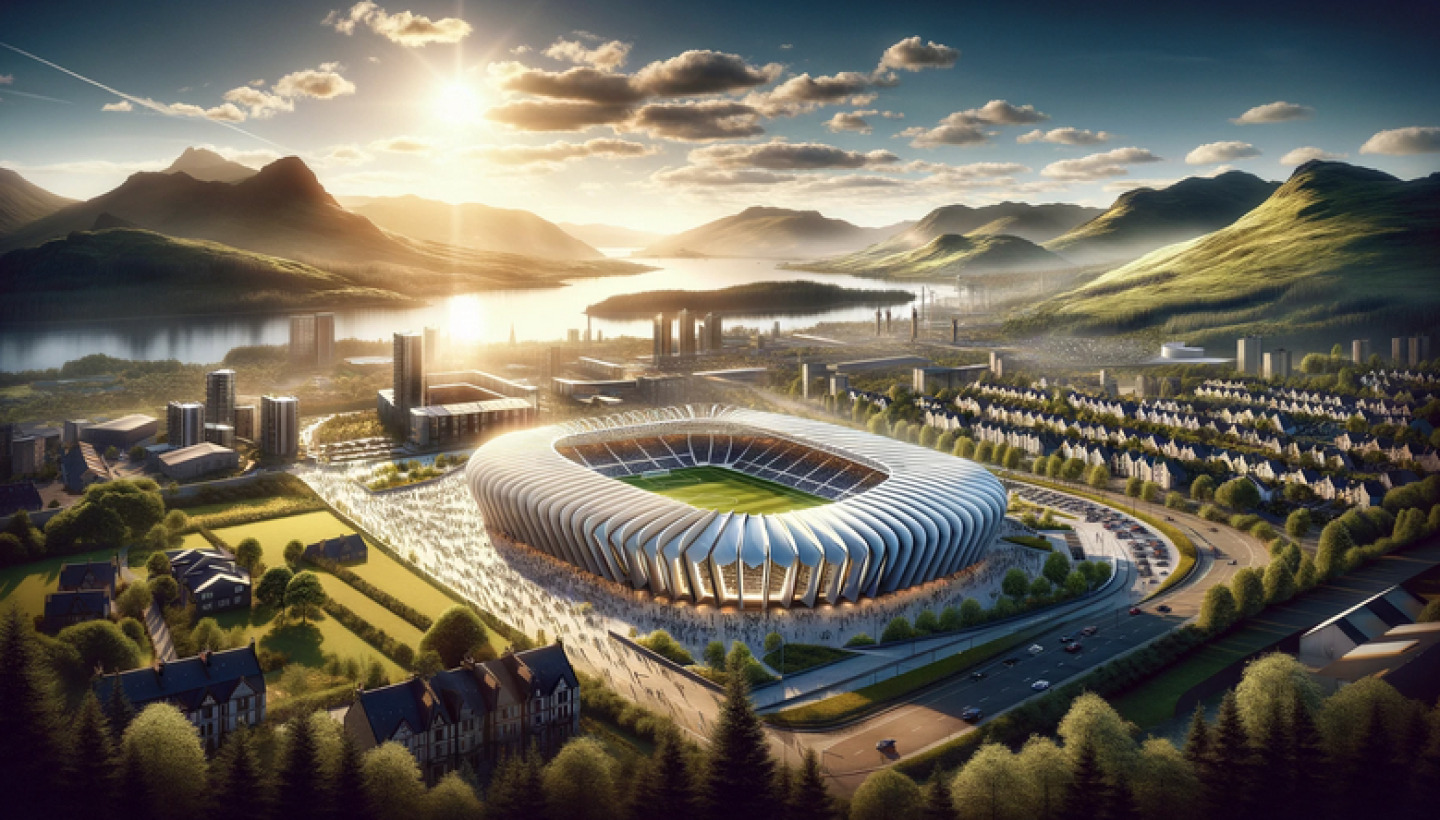
As the 21st century marched forward, the Earth's climate shifted gears, turning the dial up on temperatures across the globe. In an unexpected twist of fate, these warming trends breathed new life into the northern reaches of Scotland, transforming the once brisk Highlands into a more temperate, inviting landscape. This climatic makeover turned Fort William, historically known for its scenic beauty and outdoor adventures, into a bustling tourist hotspot, affectionately dubbed the "Costa del Scotland" by locals and visitors alike. 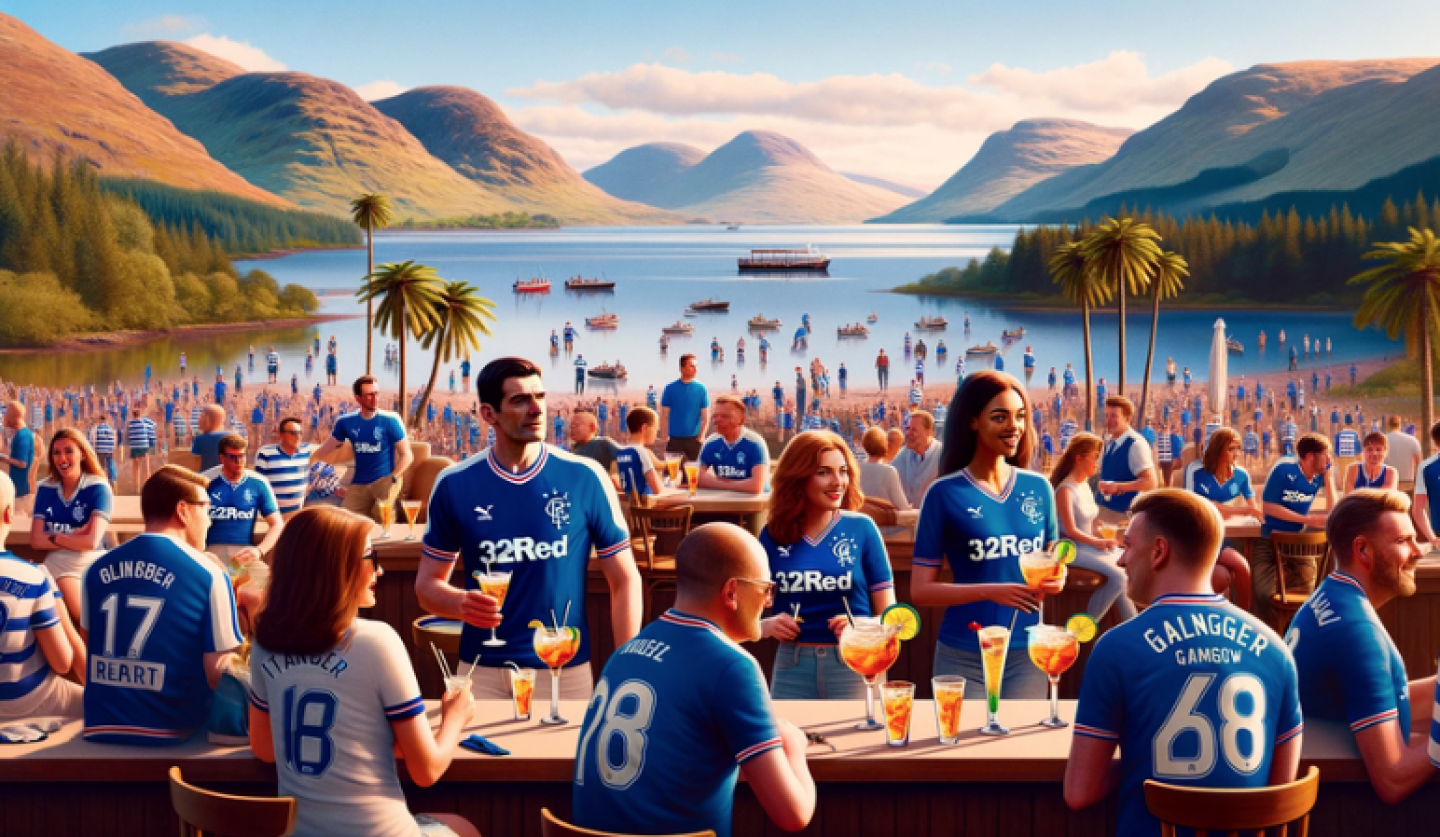
Amidst this environmental and cultural renaissance, Glasgow Rangers, one of football's storied clubs, seized the opportunity to adapt and innovate. Recognizing the changing climate—not just in weather, but in the sporting world too—the club unveiled its visionary project: a second ground, a beacon of modernity and resilience in the face of change. Thus, "New Ibrox" was born in Fort William, or as it quickly became known among fans and foes, "Fort Billy."
Fort Billy wasn't just any stadium. It was a testament to Rangers' commitment to their fans, the environment, and the future of football. Built with cutting-edge green technologies, it stood as a symbol of how tradition and progress could intertwine, creating a legacy that was both respectful of the past and mindful of the future.
The Gers' move to Fort Billy was met with unparalleled success on the pitch, as they remained undefeated in this Highland fortress, drawing crowds from near and far. Fans basked in the warmer climate, cheering on their team in what felt like a permanent vacation. This strategic expansion not only solidified Rangers' place in the evolving landscape of football but also captured the imagination of fans worldwide, proving once and for all that with innovation and adaptability, even the most unexpected challenges could be turned into opportunities. As the saying went among the Ibrox faithful, "From Govan to the Highlands, Rangers lead the way—Fort Billy, where the sun shines and the Gers play."
4 Glasgow Celtic
As the 21st century unfolded, the warming of the planet rewrote the narratives of locations, industries, and sports globally. Among these transformations, the Scottish Highlands blossomed into the "Costa del Scotland," a testament to the unexpected benefits of climate change. Glasgow Rangers, seizing this climatic opportunity, established "Fort Billy" in Fort William, a move that marked a significant shift in the footballing landscape. 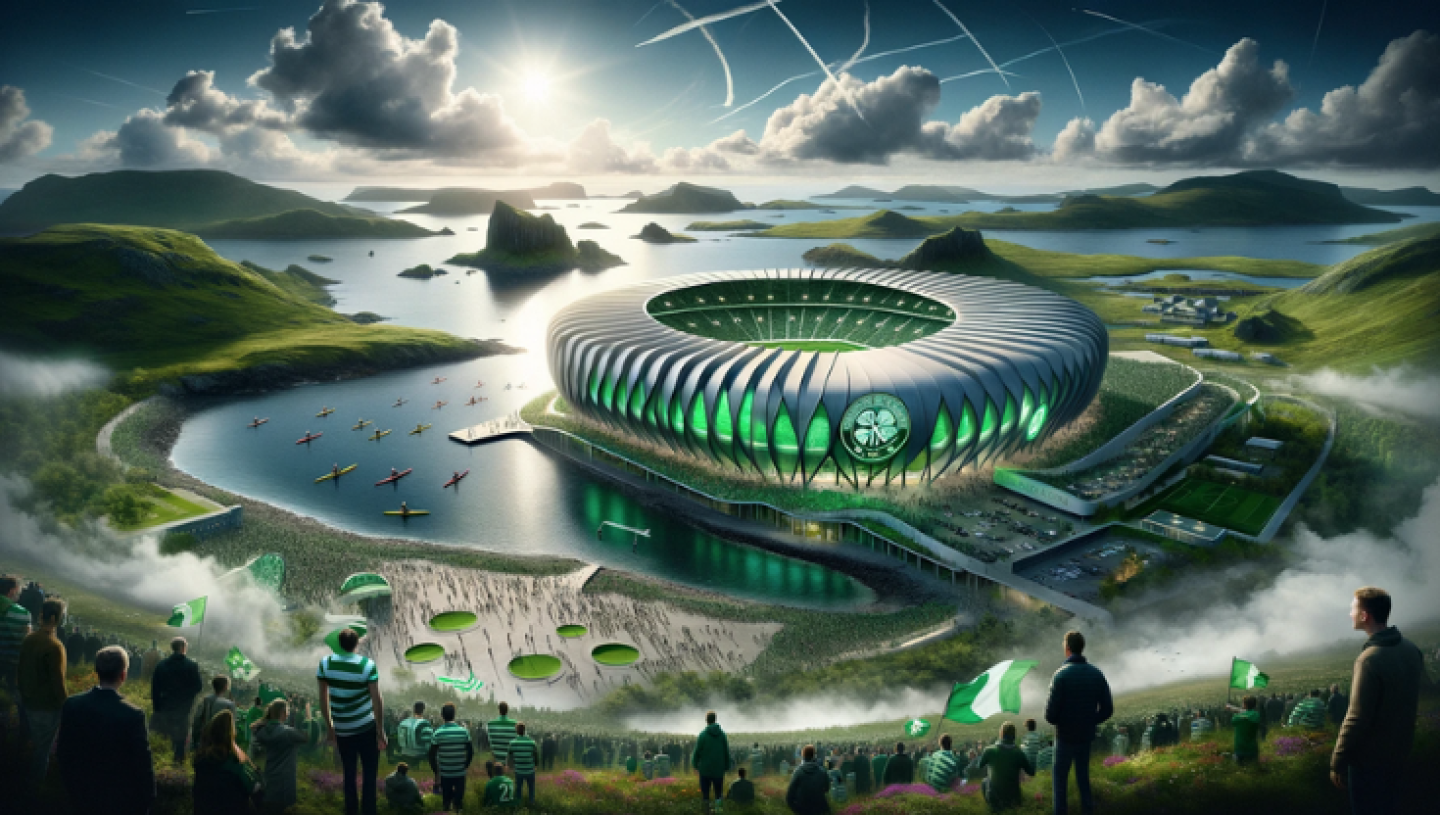
Not to be outdone by their historic rivals, Glasgow Celtic embarked on their own journey of adaptation and innovation. The club's response was both ambitious and deeply rooted in their rich heritage, a strategic move that would not only match but aim to eclipse Rangers' venture into new territories. The decision was made: Celtic would establish a second ground, but with a twist that paid homage to their Irish connections and acknowledged the changing environmental conditions.
The chosen location was the Isle of Skye, a place of breathtaking natural beauty and now, thanks to the warmer climate, an emerging tourist destination dubbed the "Emerald Isle of the North." Here, Celtic unveiled "Celtic Skye," a stadium that was a marvel of green technology and sustainable design, seamlessly blending into the picturesque landscape while reflecting the club's commitment to environmental stewardship. 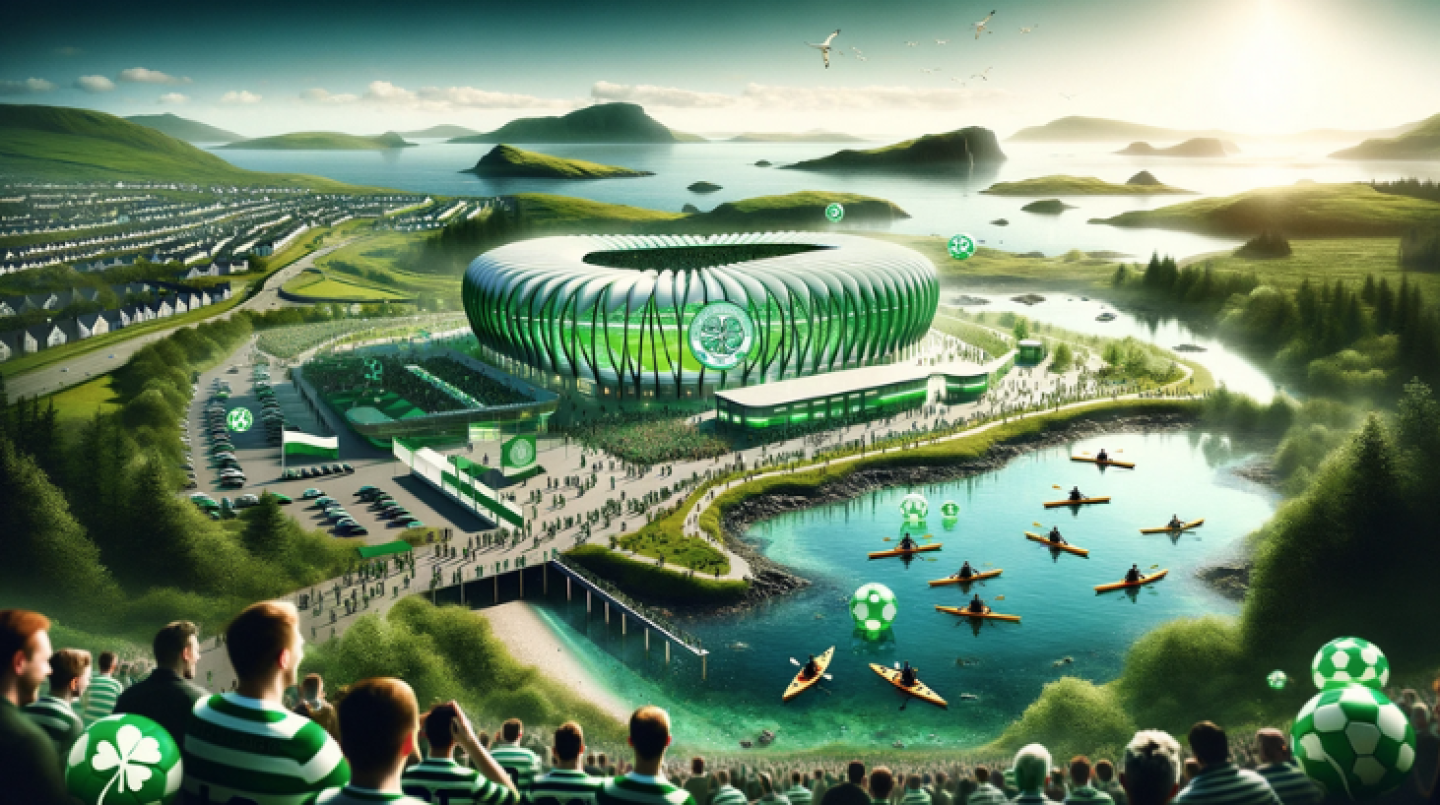
Celtic Skye quickly became known among fans as "The Green Haven," a nod to Celtic's traditional color and the eco-conscious ethos of the project. This new stadium was not just a venue for football; it was a statement of Celtic's vision for the future, where tradition harmonizes with innovation and environmental responsibility.
The rivalry between the "Gers" and the "Bhoys" found a new battleground, not just in Glasgow but in the highlands and islands of Scotland, where each club's ambition to lead in this new era was on full display. The move to Celtic Skye sparked a series of quirky traditions among the Celtic faithful. Fans began the ritual of "The Skye Pilgrimage," an annual journey that combined support for their team with appreciation for Scotland's natural beauty, culminating in a festival-like atmosphere on match days.
The Green Haven's opening match was a spectacle of football and fanfare, embedding itself in the lore of the club. Tales of fans kayaking to games, the creation of the first underwater supporters' club due to its coastal location, and the sight of kilts and jerseys mingling in the stands became part of Celtic's colorful history.
In this new age of Scottish football, Celtic and Rangers' innovative approaches to their second grounds not only showcased their adaptability to climate change but also ignited a renewed sense of competition and camaraderie. The story of Celtic Skye, set against the backdrop of environmental change, became a symbol of hope and progress, proving that even in the face of global challenges, football could find a way to inspire and unite.
5 Real Liverpool
(Before Relocation to Dublin)
In the transformative years spanning 2024 to 2049, the story of Liverpool Football Club took a dramatic and unprecedented turn. Initially, Liverpool continued to showcase their footballing excellence, securing the Premiership titles in 2024-2025 and 2026-2027, a testament to their enduring spirit, tactical ingenuity, and deep-rooted passion for the game. Under the guidance of innovative coaches and backed by a world-class academy, the Reds navigated through the evolving landscape of English football with resilience, facing both triumphs and setbacks with equal determination.
However, the football world was taken aback in 2040 when Liverpool's American owners made the bold decision to relocate the club to Dublin, rebranding it as the Dublin Reds. This move, motivated by strategic visions of expansion and tapping into new markets, initially met with mixed emotions from fans and the broader football community. Despite the geographical shift, the Dublin Reds managed to preserve the essence of Liverpool's rich footballing heritage, blending it with Dublin's vibrant culture to create a unique identity in the UIP. The club's ability to adapt and thrive in a new home was a testament to the unbreakable bond between the team and its supporters, both old and new.
Phoenix Club - Real Liverpool
Simultaneously, in a move to preserve Liverpool's storied legacy within its spiritual home, fans and local businesses rallied together in a remarkable display of solidarity and passion. In 2040, they crowd funded a buyout of non-league Southport Football Club, situated 19.8 miles north of Liverpool. This audacious step allowed them to re brand the club as Real Liverpool FC, marking the beginning of an extraordinary journey back to the pinnacle of English football. Mirroring the fairy-tale rise of Wimbledon FC in previous decades, Real Liverpool FC embarked on a meteoric ascension through the leagues, driven by grass roots support, astute management, and a clear vision.
By 2048, Real Liverpool FC had achieved the unthinkable, securing promotion to the Premiership. This rise was not just a sporting achievement but a powerful statement about the essence of football's community spirit, tradition, and enduring appeal. The tale of Liverpool's transformation, the birth of the Dublin Reds, and the rise of Real Liverpool FC encapsulated a saga of passion, identity, and rebirth in the modern game. It highlighted how, even in the face of monumental change, the heart of a club and its connection to its supporters could lead to new beginnings and remarkable journeys on the footballing landscape.
6 Everton
Evolution: Everton's focus on mental health and player well-being has set a new benchmark in professional football. Their Everton Stadium at Bramley Dock, now an eco-friendly smart stadium, symbolizes their commitment to community and sustainability, drawing fans to their inclusive and forward-thinking ethos.
7 Tottenham Hotspur
Evolution: Spurs have become synonymous with technological excellence, integrating augmented reality in training and game analysis. The Tottenham Hotspur Stadium is a global icon for multi-purpose sports and entertainment venues, enhancing the club's brand on and off the field.
8 Aston Villa
Evolution: Aston Villa has leveraged its historic prestige to build a global academy network, unearthing and nurturing talent from around the world. Their Villa Park, upgraded with immersive tech, offers fans a blend of traditional football atmosphere and futuristic experiences.
9 Newcastle United
Evolution: Relocated to Neom, Saudi Arabia, Newcastle has become a symbol of football's global reach. Their pioneering approach to fan engagement, including the 'Shearer Shakes' hyperloop travel, has redefined the matchday experience for an international audience.
10 Leeds United
Evolution: Leeds United's return to the top echelons of football is marked by their investment in youth development and community engagement, utilizing AI to tailor training programs. Elland Road remains a fortress, modernized to enhance fan experience while preserving its intimidating atmosphere.
11 Sunderland 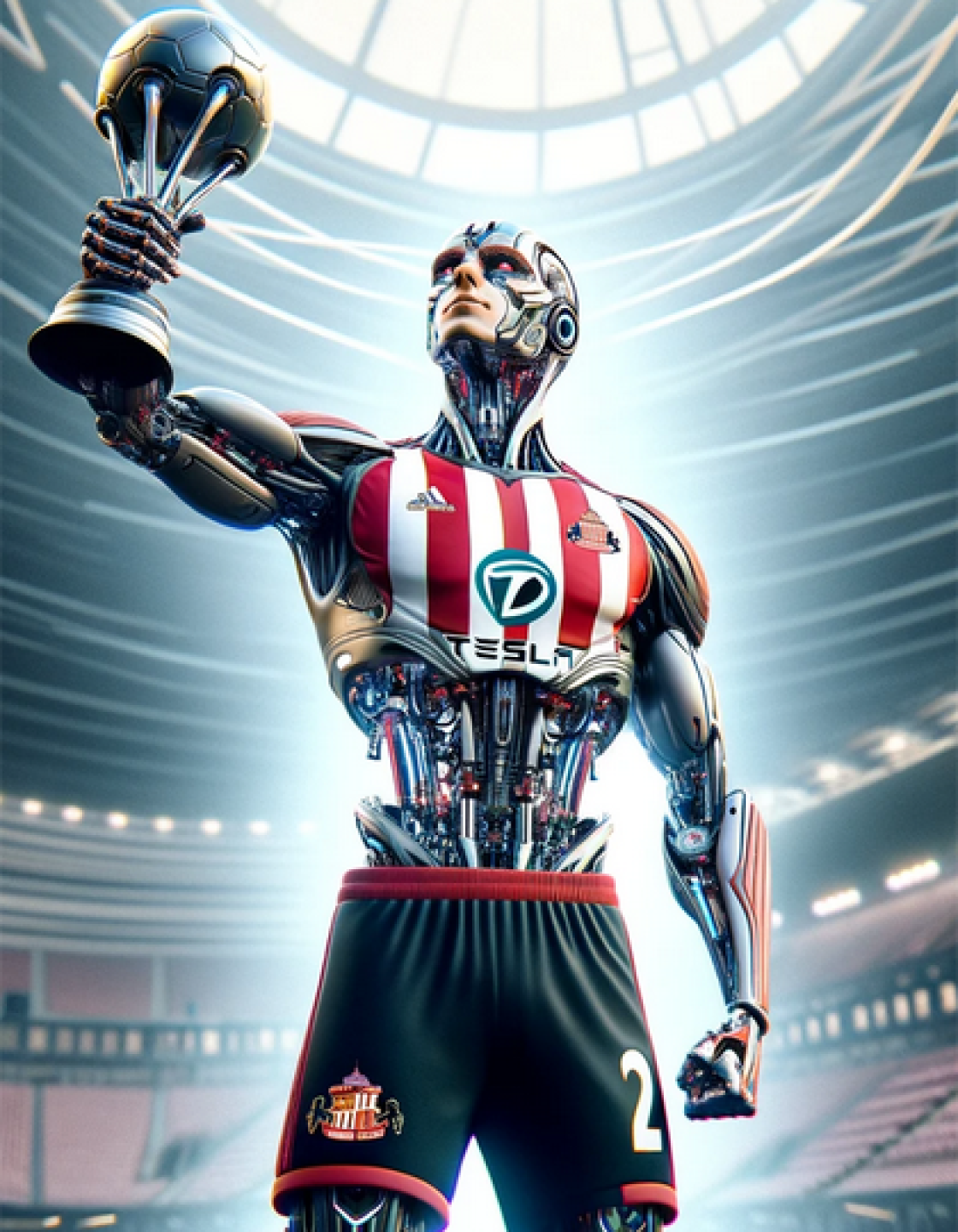
Evolution: Sunderland AFC under the stewardship of tech trillionaire Elon Musk are the powerhouse champions of the UIP League. They play out of the 90,000 seater Neurolink Stadium.
12 Burnley
Evolution: Burnley's emphasis on data analytics and sports psychology has transformed their playing style and squad resilience. Turf Moor, now a smart stadium, offers a unique blend of traditional football culture and cutting-edge fan services.
13 Chelsea
Evolution: Chelsea FC has emerged as a pioneer in the fusion of sports, technology, and environmental stewardship, underpinned by a visionary leadership that aims to redefine what a football club can represent in the 21st century. Stamford Bridge has been transformed into an eco-architectural marvel, known globally as the "Green Fortress," showcasing the world's most advanced green technologies. This includes solar panels that cover its iconic retractable roof, a closed-loop water system, and the club's own biofuel energy production.
On the pitch, Chelsea's approach to the game has evolved with a focus on smart analytics, leveraging AI and machine learning to enhance player performance and tactical flexibility. The club has also established a state-of-the-art sports science facility, which not only focuses on maximizing physical performance but also emphasizes mental health and cognitive development, ensuring players achieve their peak both on and off the field.
Chelsea's global outreach program has expanded, with football academies and social projects across continents, focusing on education, health, and the promotion of football as a tool for social change. The club's digital platform, Blue Pulse, offers an immersive VR experience, allowing fans worldwide to watch matches in virtual reality, engage in interactive content, and participate in global fan forums, making the Chelsea community more inclusive and connected than ever.
The club's commitment to innovation, community, and sustainability has not only solidified its status as a beloved global brand but also as a leader in the future of sports. Chelsea continues to compete at the highest levels, driven by a philosophy that integrates sporting excellence with positive social impact, ensuring its legacy and influence extend far beyond the football pitch.
14 Nottingham Forest
Evolution: Nottingham Forest's rich history is complemented by their advancements in player recovery technologies and holistic health approaches. The City Ground is a hub for community and environmental initiatives, reflecting the club's values and legacy.
15 Manchester City 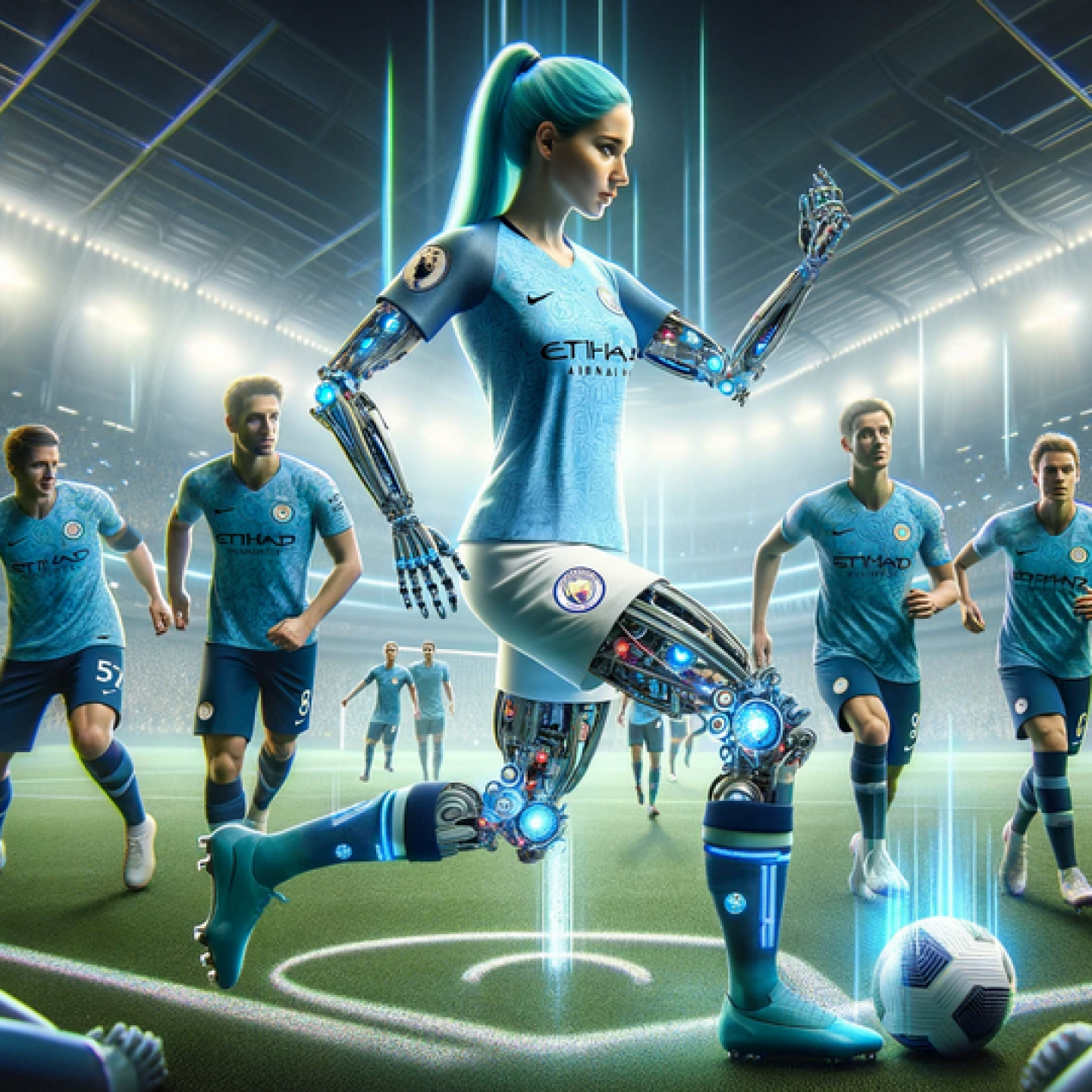
Evolution: Despite fluctuating fortunes, Manchester City has remained a hub of innovation, particularly in eco-friendly stadium design and renewable energy use. Their Etihad Campus is a world leader in sports science and sustainability practices.
16 West Ham United
Evolution: West Ham's integration of esports and traditional football has opened new avenues for fan engagement and talent development. The London Stadium is at the forefront of digital entertainment, offering a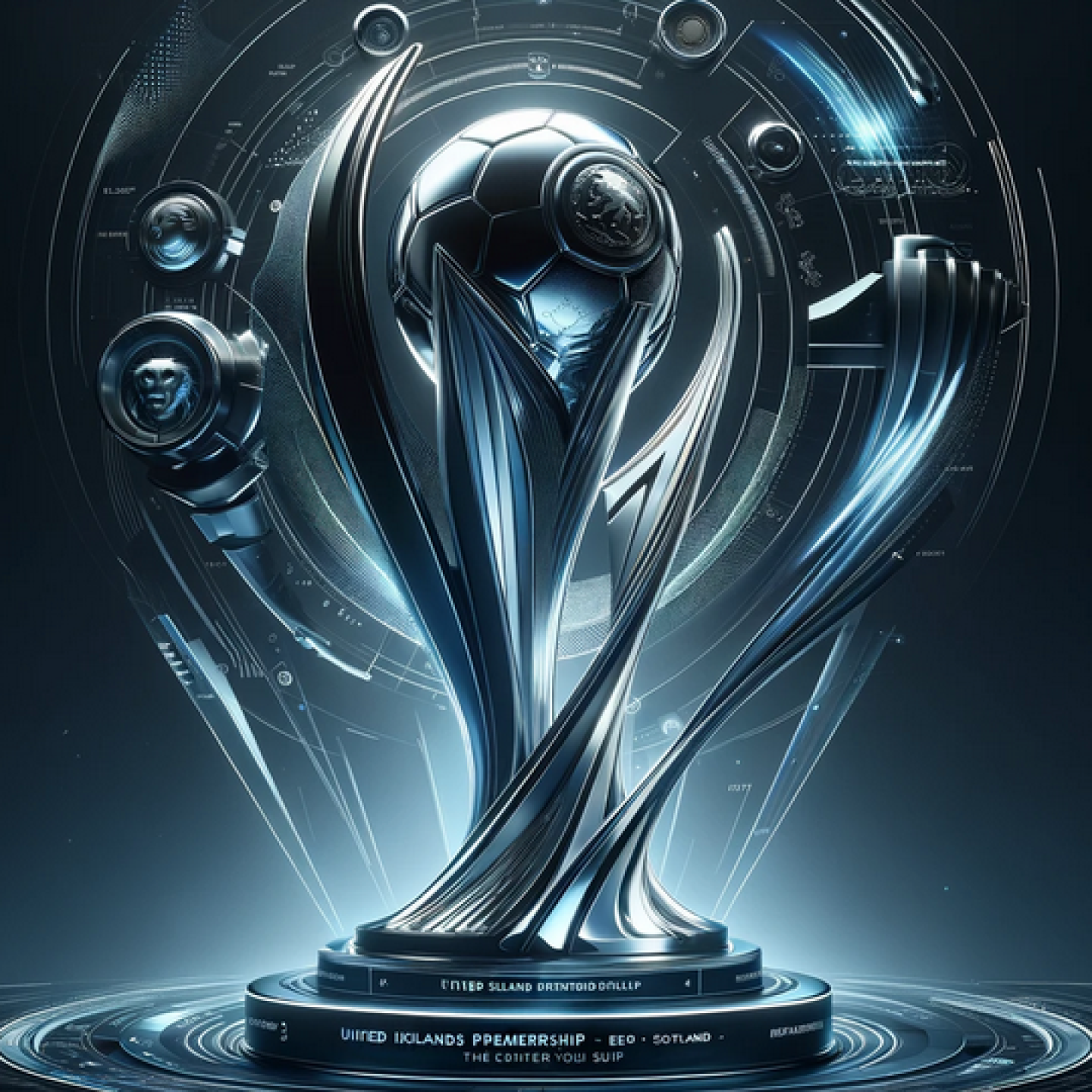 multi-layered experience to a global audience.
multi-layered experience to a global audience.
17 Sheffield Wednesday
Evolution: Sheffield Wednesday's revival is rooted in community ownership and digital inclusivity, bringing fans closer to the club's decision-making. Hillsborough has been revitalized as a community sports hub, emphasizing accessibility and fan interaction.
18 Derby County
Evolution: Derby County's strategic partnerships in technology and health have fostered a culture of innovation and excellence. Pride Park Stadium, known for its advanced injury prevention and player tracking systems, stands as a testament to their forward-thinking approach.
19 Wrexham
Evolution: Propelled into the UIP by celebrity ownership, Wrexham has embraced its role as a media darling, leveraging content creation and social media to expand its brand. The Racecourse Ground is a digital fortress, offering immersive matchday experiences. 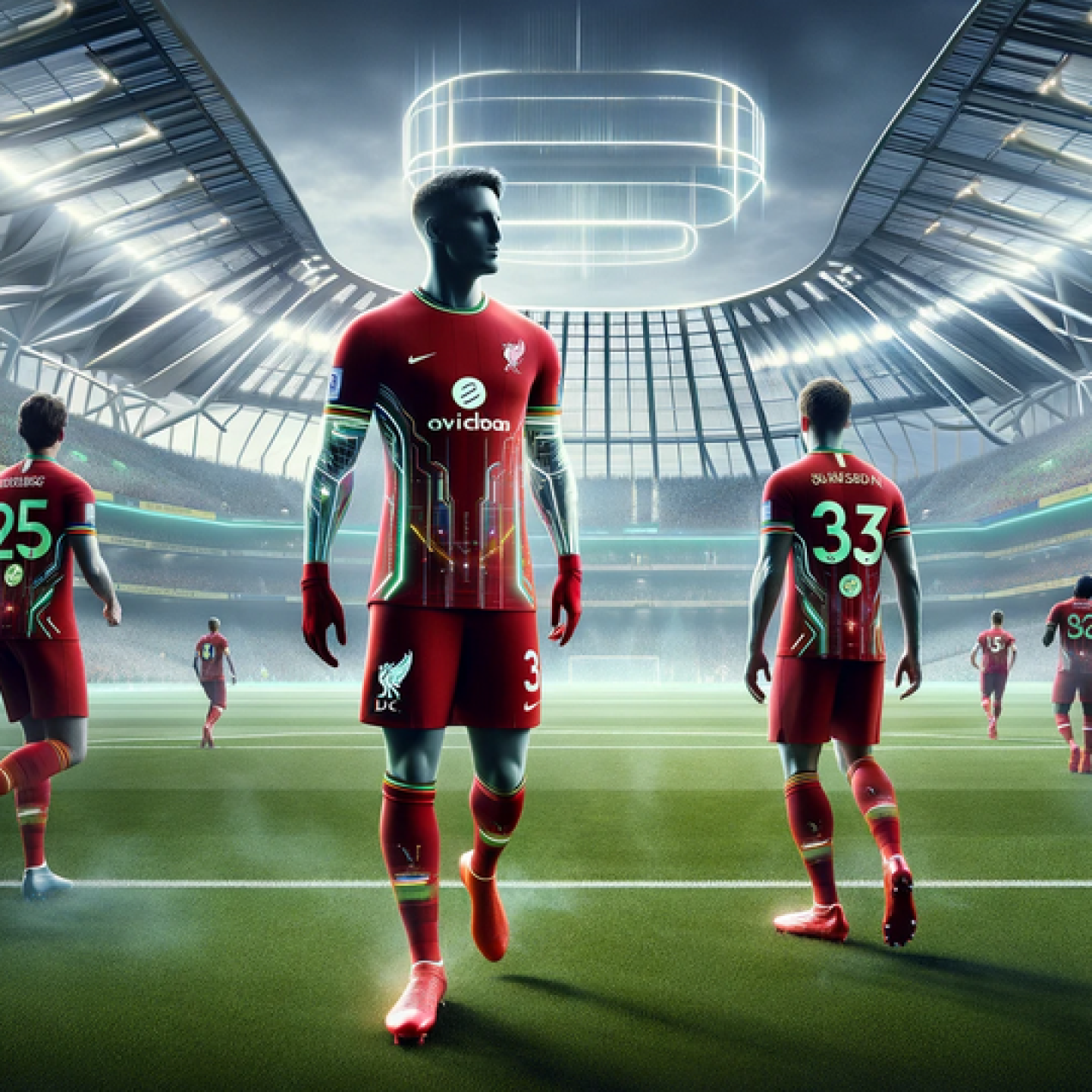
20 Dublin Reds
Evolution: The transformation of Liverpool after the franchise relocation into Dublin Reds FC has created a new footballing identity, merging Irish passion with Premier League experience. Their rivalry with Real Liverpool adds a captivating narrative to the UIP, driven by deep historical and emotional ties.
Each club's journey into the future reflects the evolving landscape of football, where tradition meets innovation, creating a dynamic and captivating football league that captivates fans worldwide.